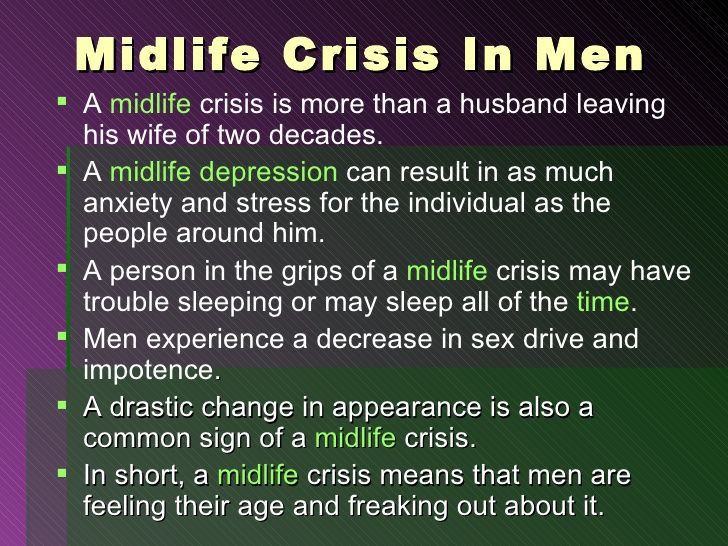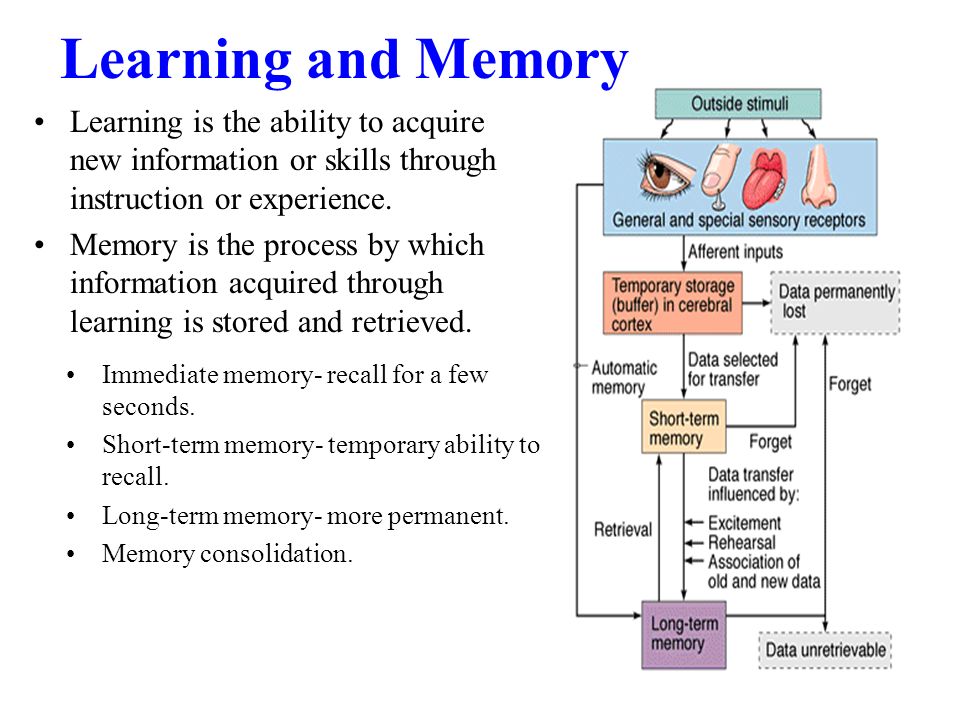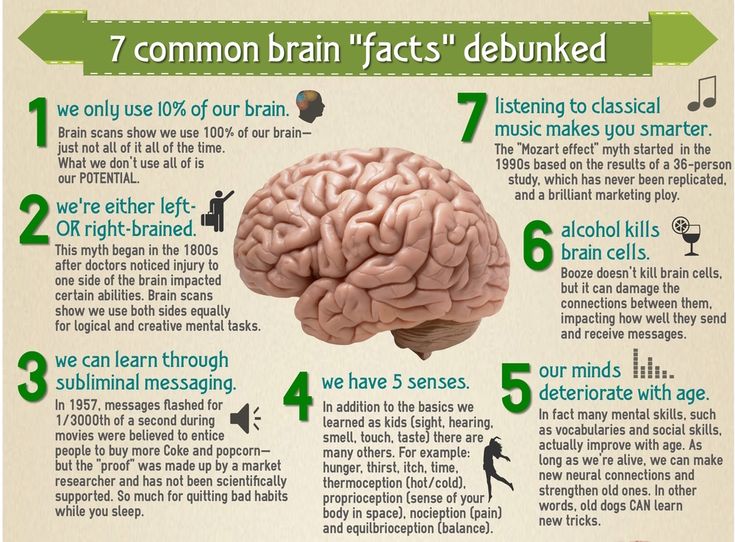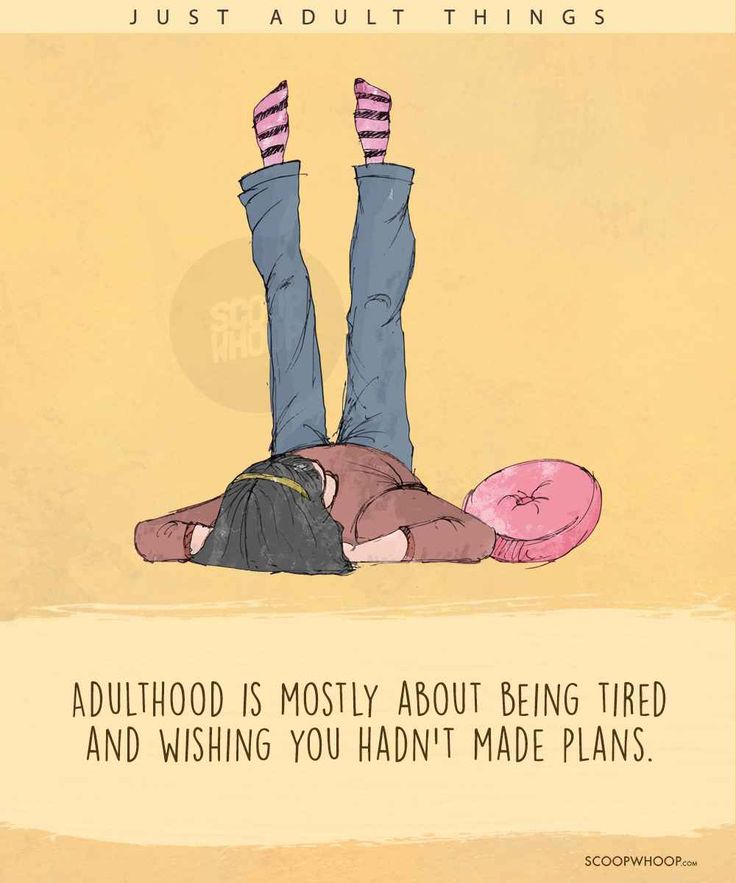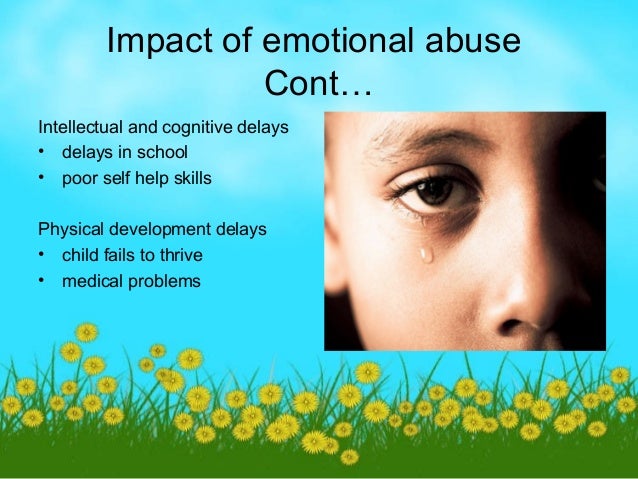What are the symptoms of a male midlife crisis
Midlife crisis warning signs for a man
Sports cars and hairpieces. Robbing the cradle and running away. Sure they're cliche, but if these images leap to mind when you hear the words "midlife crisis," you're not alone.
The thing about cliches, though, is most are based on fact. In this case, the facts are staggering. More than half of respondents to a poll on Notmuch.com, a website produced by Wisconsin Public Radio, said that the midlife crisis is a "very real, gut-wrenchingly depressing experience that we all go through at one time or another."
Does this mean that the man in your life is suffering through a crisis of his own? Not necessarily, but here are eight symptoms of the male midlife crisis and what you can do about them:
1. He says life is a boreIf your man once liked his job and was happy at home but now expresses restlessness or apathy, he might be headed for a midlife crisis. There is usually one of two reasons for this: Some men hit middle age and notice that many of their dreams have gone (and might remain) unfulfilled. Other men react this way because they have accomplished so many career goals that they wonder if there is anything left to do. Regardless of the reasoning, a bored man wants to shake up his routine. Typically, this means anything from quitting his job to making frequent plans to paint the town red with "his boys."
When this happens within a marriage or relationship, it's common for women to comfort themselves by thinking it's just a phase. But experts say that's a mistake. "There is a tendency to ignore, dismiss or deny the signals at this time, hoping they will go away," according to Lifematters.com, an online library of articles designed to educate people about health and well-being. "We work harder or distract ourselves only to postpone the inevitable, for months or, sometimes, years." Sometimes, a man might feel unchallenged for a long time and that can take a serious toll on a relationship. So, what can you do? Pay attention to your partner's restlessness and really listen when he talks to you about his concerns.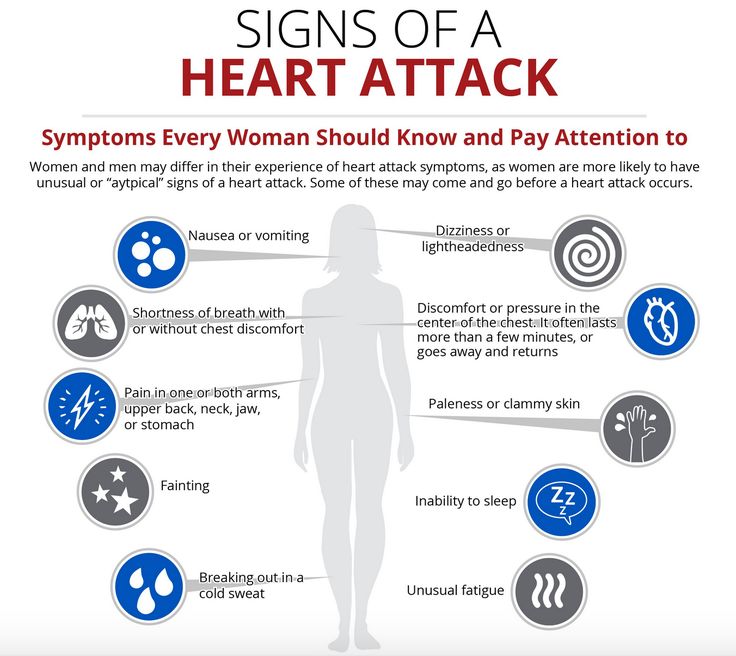 Encourage him to make minor changes — trying a new cuisine, taking up a hobby—as opposed to more drastic ones like drowning his sorrows at the local bar or moving to Bora Bora.
Encourage him to make minor changes — trying a new cuisine, taking up a hobby—as opposed to more drastic ones like drowning his sorrows at the local bar or moving to Bora Bora.
Has your longtime, faithful husband had a wandering eye lately? Are strange women calling the house? Do his shirts reek of someone else's perfume? Does he have all sorts of excuses — from helping out friends to working late — to explain why he hasn't been around the house lately? If you are asking yourself these questions, your husband might be cheating on you. This is just one of the painful results of a midlife crisis. Jim Conway, psychologist and co-founder of Midlife Dimensions, a group that offers counseling and support to midlife couples and their children, says that midlife men often "turn tender" and start to focus more on people and feelings, but ironically some marriages suffer for it; men are easily drawn into an affair if their wives don't understand the changes in them and communication breaks down, says Conway. But if he does have an affair, remember that it is never your fault. He made the choice to break your vows. "Can a wife prevent a midlife affair? Probably not," says Pat Gaudette, founder of The Midlife Wives Club and co-author of "How to Survive Your Husband's Midlife Crisis." "She can confront, demand, give ultimatums, but if a man is amid crisis he won't be listening."
But if he does have an affair, remember that it is never your fault. He made the choice to break your vows. "Can a wife prevent a midlife affair? Probably not," says Pat Gaudette, founder of The Midlife Wives Club and co-author of "How to Survive Your Husband's Midlife Crisis." "She can confront, demand, give ultimatums, but if a man is amid crisis he won't be listening."
Pay attention if your husband suddenly loses interest in his career, wants a different one or splurged on that red Ferrari he always dreamed of driving (even though you have a mortgage to pay). These actions are indicative of your man's sudden desire to live life to its fullest. He's probably thinking, "Maybe I can make up for all the things I let slip by in my youth." It's a sure sign of a midlife crisis. But this symptom is easier to overcome as a couple than some of the others. Midlife adviser Robert L. Adams says that men and women simply misunderstand each other. "Often, husbands fear they will only upset their wives if they raise a new idea before they are convinced it's a good direction to move in," says Adams. "In other words, what appears 'impetuous' to the wife is actually the result of a long thought-process on the part of the husband." This is the type of gripe that requires patience and communication. Try to understand why this career change, major purchase or investment was important to him and how he came to this conclusion. Then discuss the matter rationally.
"Often, husbands fear they will only upset their wives if they raise a new idea before they are convinced it's a good direction to move in," says Adams. "In other words, what appears 'impetuous' to the wife is actually the result of a long thought-process on the part of the husband." This is the type of gripe that requires patience and communication. Try to understand why this career change, major purchase or investment was important to him and how he came to this conclusion. Then discuss the matter rationally.
If your man has kicked up the vanity a notch (for example, wants hair plugs or starts getting facials even though he used to take pleasure in shower-free weekends), then you may have a problem. If the guy who always prided himself on his Roman nose is now talking about rhinoplasty, then your problem is a little bigger. The first step in boosting your man's bruised (and aging) ego is to compliment him. Sometimes, however, this isn't enough. That's when you just have to be patient.
Sometimes, however, this isn't enough. That's when you just have to be patient.
Unfortunately, an increased sense of vanity is sometimes a sign that a man is having an affair. Obviously this is a bigger problem that usually requires couples counseling to repair the relationship, if it's possible at all.
5. He has little interest in spending time (or having sex) with youFor couples who had a nonexistent sex life before reaching midlife, less nookie over 50 doesn't necessarily mean hubby is in crisis. But if he seems to be struggling with his self-esteem or is generally unhappy, sex might become an additional burden to him. On the other hand, if he's having an affair, he might actually get friskier with you so you don't suspect. Keep an eye out for major changes one way or another. And, again, ask your husband about anything that's confusing you. The experts agree that good communication skills are important to any marriage and are especially useful during a midlife crisis—his or yours!
6.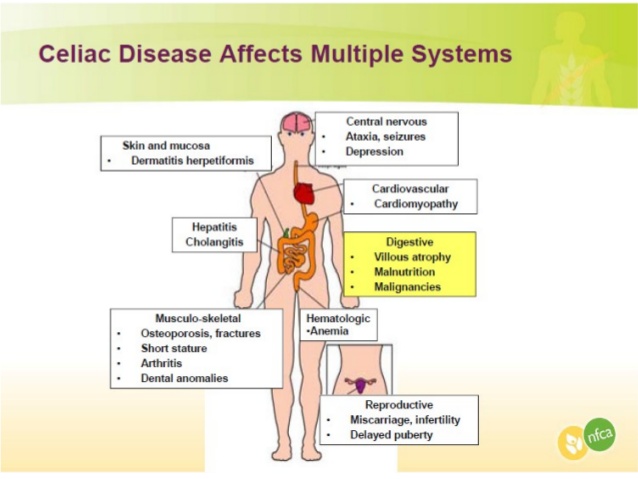 He is drinking too much or abusing other substances
He is drinking too much or abusing other substances This one is obvious. The smell of liquor on his breath, empty bottles around the house, bloodshot eyes and erratic behavior are all indications that your man might have a serious drinking problem. But this is one problem that your man may have to deal with largely on his own. "A wife can tell a husband that she disagrees with his behavior, but she cannot 'make' him stop any behavior that he doesn't want to stop," says Gaudette. "Counseling for her, him or the both of them might help a couple get through this type of crisis, but he has to be willing." If he doesn't think he has a problem, Gaudette suggests that his loved ones participate in Al-Anon or another similar group that provides support to relatives of substance-dependent people.
7. He is displaying the classic signs of depression — sleeping more, loss of appetite, malaiseThis behavior is often the result of a family tragedy such as a parent's death or another type of shock to the system such as getting laid off from a longtime job. Difficult life events can also trigger depression and exacerbate a midlife crisis. Although the American Psychological Association reports that depression affects more than 6 million men every year, many men choose to ignore the signs because they consider it "unmanly" to admit they feel blue and out of sorts. If you see these symptoms in your man, you can definitely encourage him to see a therapist, psychologist or even a religious leader who can counsel him. It's not uncommon for a partner to need extra support of her own in these cases. You might want to join him at couples therapy or do the same on your own.
Difficult life events can also trigger depression and exacerbate a midlife crisis. Although the American Psychological Association reports that depression affects more than 6 million men every year, many men choose to ignore the signs because they consider it "unmanly" to admit they feel blue and out of sorts. If you see these symptoms in your man, you can definitely encourage him to see a therapist, psychologist or even a religious leader who can counsel him. It's not uncommon for a partner to need extra support of her own in these cases. You might want to join him at couples therapy or do the same on your own.
At midlife, some men start to ponder "what if," and they question their past decisions. The unfortunate thing about nostalgia, though, is that everyone seems to see the past through rose-colored glasses. Of course, you know that your husband has no idea what would have really happened if he had married his high school girlfriend (unless you were his high school girlfriend), but now he can dream about what it would have been like — and chances are, he only remembers the good parts of their relationship. This fantasy feels good to him because even if he loves you, he can leave the kids, the chores and the bills out of his daydreams about his first love. But don't worry. This make-believe world is only dangerous if he starts to pursue a relationship with the woman in question or pulls wild stunts with his old fraternity brothers in the name of the good ol' days.
This fantasy feels good to him because even if he loves you, he can leave the kids, the chores and the bills out of his daydreams about his first love. But don't worry. This make-believe world is only dangerous if he starts to pursue a relationship with the woman in question or pulls wild stunts with his old fraternity brothers in the name of the good ol' days.
Francesca Di Meglio is a contributing writer for iVillage. Follow her on Google +.
A version of this story originally appeared on iVillage.
Midlife Crisis in Men: Signs, Causes & Solutions
Picture a “midlife crisis” and you’ll probably think of a middle-aged man impulsively purchasing a sports car, leaving his spouse and starting to see a younger girlfriend. Maybe this mental picture even involves him quitting his job to spend more time on the golf course.
The midlife crisis has become a staple of pop culture, appearing in countless TV shows, movies and other forms of media.
While the stereotypical midlife crisis similar to what’s described above does sometimes happen, most midlife dissatisfaction in men is different.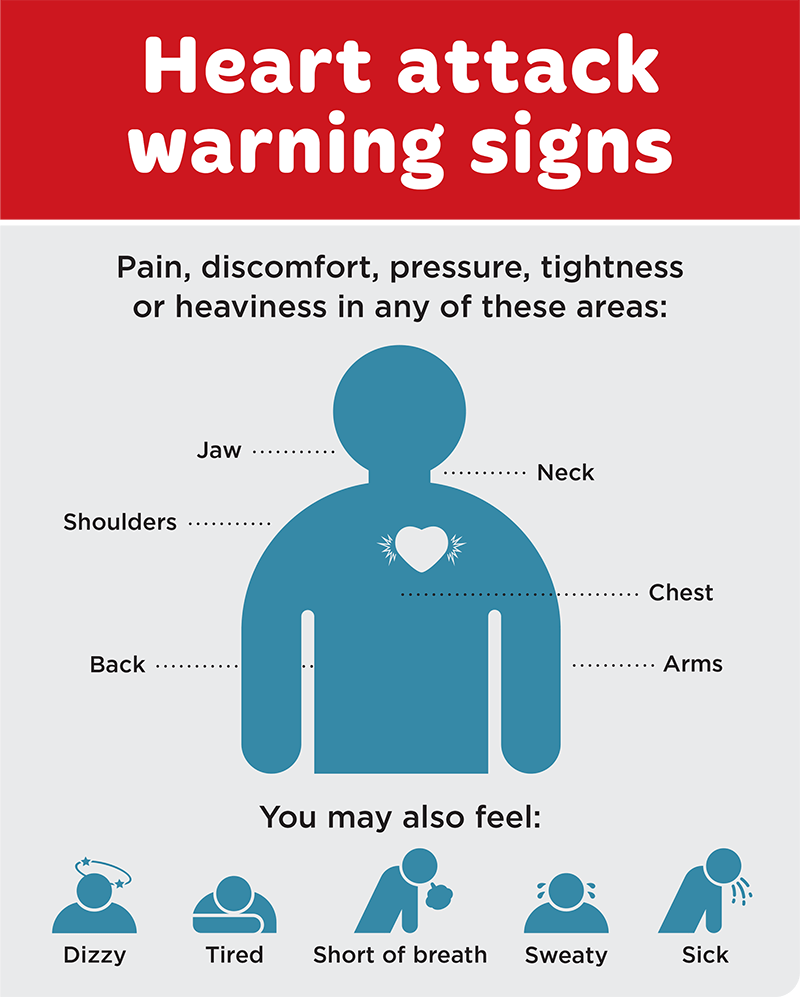 For some, getting older can involve abrupt, major changes. However, for many, the signs of a midlife crisis are much more subtle.
For some, getting older can involve abrupt, major changes. However, for many, the signs of a midlife crisis are much more subtle.
Below, we’ve explained what a midlife crisis is, as well as how the common perception of midlife crises relates to clinically recognized mental health conditions.
We’ve also listed common signs of dissatisfaction and poor mental health that can occur in men as they enter a new stage of life in their 40s, 50s or 60s, as well as the options that are available for making progress and feeling better.
What Exactly Is a Midlife Crisis?
Before we get into details, one thing that’s important to clear up is that a midlife crisis isn’t really a recognized mental health condition.
By this, we mean that if you, as a man, are starting to feel dissatisfied with your life in your 40s, 50s or 60s, your mental health provider isn’t going to formally diagnose you with a midlife crisis and prescribe medication or a specific type of “midlife crisis management” therapy.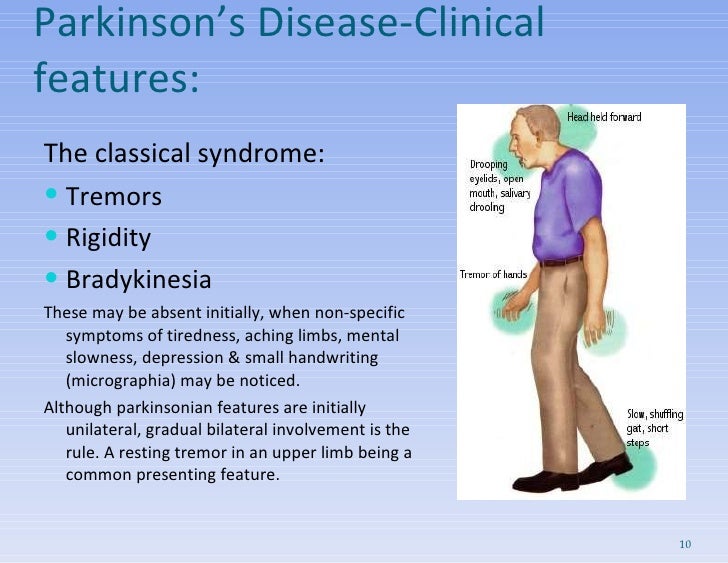
The midlife crisis is more of a social phenomenon than a specific mental illness. It’s a term that refers to the dissatisfaction, anxiety and feelings of depression or remorse that many men start to feel as they transition from the first part of their adult life into middle age.
During this period, it’s common to look back on things you may have planned and see that they didn’t come to fruition, or see your peers succeed in ways that might make you feel inadequate or as if you aren’t living up to your full potential.
The term midlife crisis was coined in the mid-1960s by Canadian social scientist Elliott Jaques. He observed that many of his middle-aged clients changed their behavior in response to coming face-to-face with their personal limitations and growing awareness of their mortality.
Although it’s normal to experience certain realizations with age and to change your thinking and behavior in response, the pop culture perception of the typical midlife crisis — a new car, divorce and younger partner, and an increased focus on personal appearance — isn’t really accurate.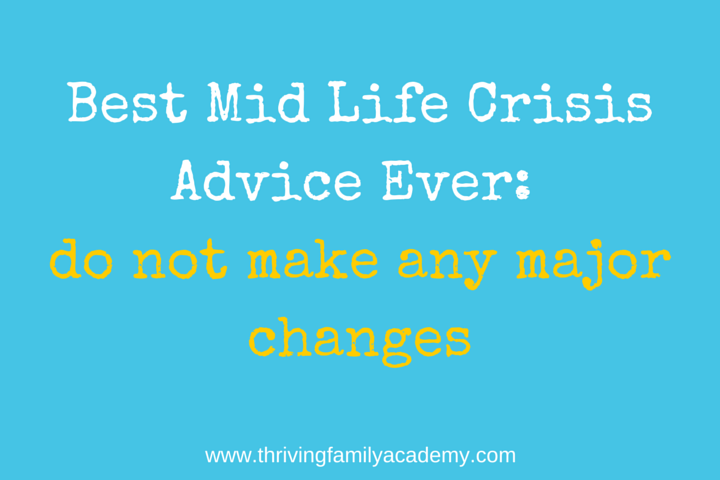
In fact, research shows that only around 10 to 20 percent of men actually go through the typical “midlife crisis” as they get older.
However, many studies actually do support the idea that many people develop issues related to mental health in midlife. Although findings are mixed, some research suggests that a U-shaped curve in wellbeing that occurs during adulthood can reach its low point during middle age.
This change in your feelings, perception of yourself or mental health may spur you to take action and change certain aspects of your life.
Signs and Causes of Midlife Crises in Men
Because a midlife crisis isn’t a clinically recognized mental health issue, there aren’t any specific symptoms that mental health providers use to identify this issue in men.
It’s important to note that many of the cliché “signs of a midlife crisis” aren’t reliable indicators of mental health or wellbeing. If you’re in your 50s or 60s and just want to buy a Corvette, or if you no longer feel happy in your relationship, this doesn’t mean that you’re mentally unwell.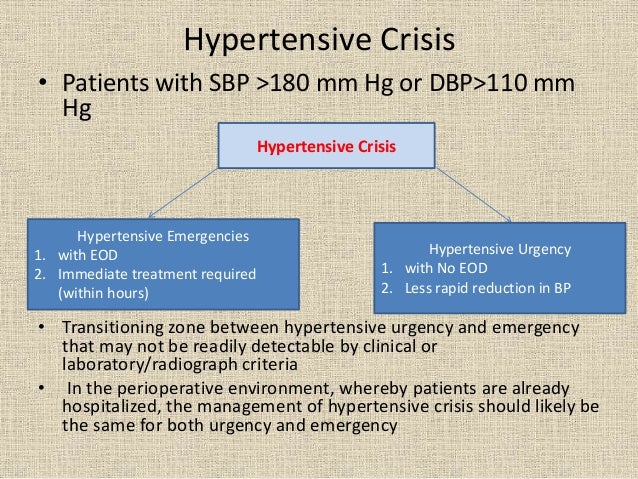
However, some of the symptoms and behaviors associated with a midlife crisis can be similar to those of known, clinically recognized mental health issues, including clinical depression, anxiety and professional burnout.
Signs of Clinical Depression in Middle Age
Major depressive disorder (MDD) is the most common mental disorder in middle-aged folks. In fact, data from the 2020 National Survey on Drug Use and Health (NSDUH) suggests that 5.4 percent of people aged 50 and older experienced a depressive episode in the past year.
Sometimes, a midlife crisis may be a type of existential crisis that leads to depression symptoms — a phenomenon referred to as existential depression.
This type of event can occur due to changes in your life, such as your children leaving home, or a significant setback, such as job loss. The death of a parent or other person close to you could also trigger an existential crisis.
During a period of existential crisis, you may question your life decisions and think about making changes to your life.
You may experience the following symptoms of depression in middle age:
A persistent sad, negative and generally empty mood
Increased irritability and a “shorter fuse” with other people
Feelings of anxiety, pessimism and hopelessness
Difficulty focusing on tasks or remembering information
A sense that you’re guilty, worthless or unable to be helped
Slowed movement, speech and decision-making abilities
Insomnia (difficulty falling asleep or staying asleep) and/or oversleeping
Difficulty sitting still and a general feeling of restlessness
Changes in your appetite, eating habits and body composition
Reduced energy and a feeling that you’re physical fatigued
Aches, pains, digestive issues and other physical symptoms
Suicidal thoughts and/or attempts to commit suicide
It’s common and normal to experience some of these symptoms on an occasional basis, even if you’re not depressed.
However, if you experience several symptoms which are persistent enough to affect you on a daily basis for two or more weeks, it’s possible that what seems like a midlife crisis could be clinical depression.
These symptoms can have a significant impact on your behavior, especially if they’re the result of an existential or emotional crisis. You may notice that you:
Change your sleep habits, such as sleeping less, more or sleeping poorly.
Notice a decline in your level or interest in work or workplace performance.
Pay less attention to your appearance and personal hygiene.
Experience a significant amount of weight gain or weight loss.
Withdraw from romantic relationships or friendships and hobbies.
Engage in unhealthy behaviors, such as drinking alcohol often or to excess.
Behave differently around other people, such as friends and family members.
Our full guide to the signs of clinical depression discusses these symptoms in more detail and explains how you can seek help.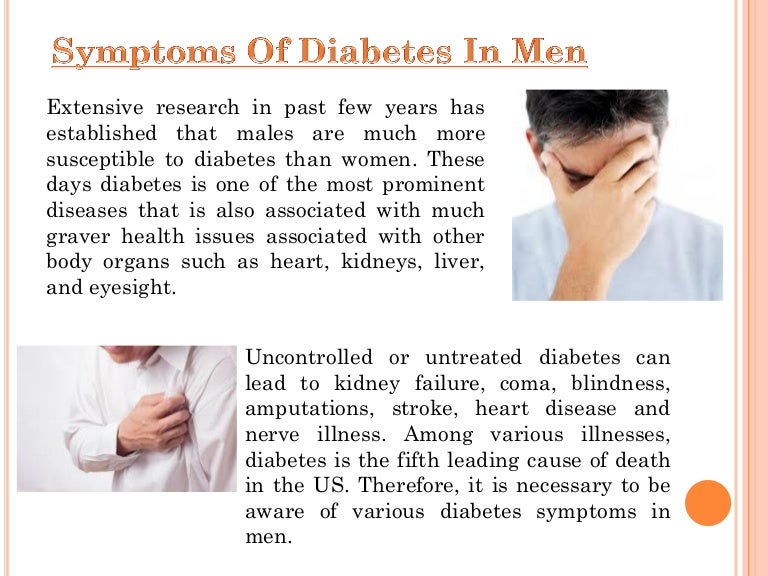
Signs of Anxiety in Middle Age
It’s actually pretty common to experience anxiety disorder in middle age. In fact, research from 2001 to 2003 showed that approximately 20.6 percent of adults aged 45 to 59 experienced clinically significant anxiety disorder in the past year, although precise numbers may vary from year to year.
Anxiety can develop after a stressful or negative life event. Certain medical conditions that tend to become more common in middle age, such as heart arrhythmias and thyroid conditions, may also play a role in the development of anxiety symptoms.
Common symptoms of anxiety include:
Finding it difficult to concentrate
Feeling irritable, restless and wound-up
Physical symptoms, such as muscle tension
A general feeling of tiredness and fatigue
Feelings of worry that are difficult to control
Difficulty sleeping and/or unsatisfying sleep
Some aspects of growing older, such as changes in physical health or an increasing amount of awareness and fear of death, could potentially affect the development of these symptoms.
Our guide to anxiety symptoms in men provides more information about how anxiety may affect your thinking and behavior throughout your life.
online counseling
the best way to try counseling
Other Factors That May Contribute to a Midlife Crisis
In addition to existential concerns and established mental health conditions, a variety of other factors may all play a role in the midlife transition that many men go through as they enter into their 40s, 50s and 60s.
These may include:
Unhappy relationships. Research suggests that relationship satisfaction often dips as people approach middle age reaching a low point at around age 40, but then increases until around age 65, when it plateaus. This decline may play a role in the midlife blues experienced by some men.
Changes in hormone levels. It’s normal for your levels of certain sex hormones, such as testosterone, to decline with age. This can change the way you think and feel, and may play a role in some behavioral signs associated with a typical midlife crisis.

Public messages about aging. Messages in pop culture and marketing can make the process of growing older feel far from glamorous. This may affect your self-esteem and sense of life satisfaction.
Financial concerns. Midlife is often the peak of a person’s earning potential. This is often a positive thing, but it may also produce concerns about saving for retirement and growing expenses, including for necessities such as healthcare.
Empty nest syndrome. This is a psychological condition that can occur when children move out of home — a common occurrence during a person’s middle age. It may lead to feelings of grief, loss and difficulty adjusting to a new role in life.
How to Deal With a Midlife Crisis
Going through a midlife transition can be a challenging experience. For some men, it’s a more smooth transition from one phase of life to the next. For others, it may be a difficult period that involves sudden, difficult changes and mental health issues.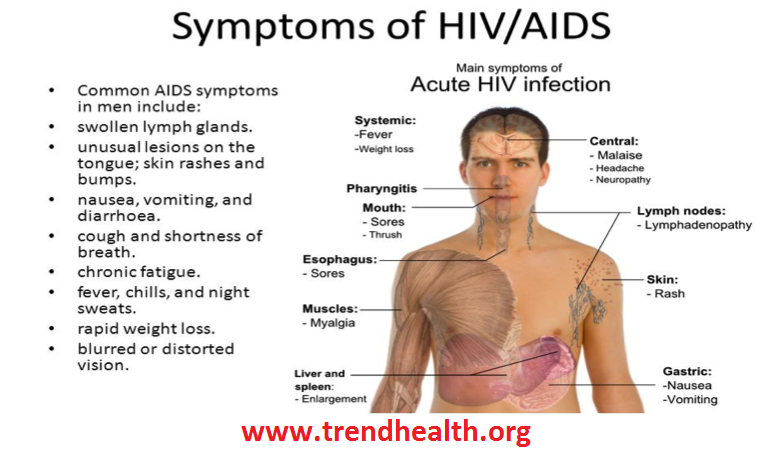
Try the following techniques and strategies to successfully navigate the changes, worries and concerns that may occur in middle adulthood.
Find Positive Ways to Deal With Midlife Concerns
One important thing to keep in mind is that what people may perceive as a typical midlife crisis isn’t always a negative thing. In fact, for many people, the existential questions that tend to pop up in middle age can potentially lead to positive outcomes.
For example, concerns about your appearance, negative health-related habits or an increasing risk of chronic illnesses can all serve as inspiration to improve your habits and take your health more seriously.
Likewise, a sense that you’ve missed out on certain opportunities to enjoy life can inspire you to spend more time doing the things you truly enjoy.
It’s important to differentiate between the negative aspects of popular culture’s idea of a midlife crisis and the positive ones.
There’s nothing wrong with exercising more, buying new clothes or taking steps to make aging less obvious.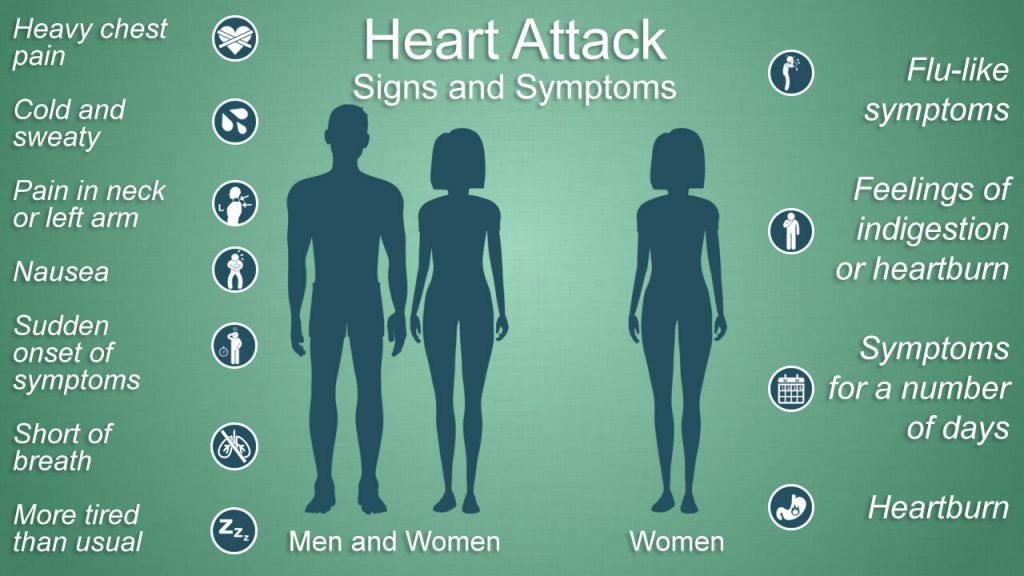 It’s also a great thing to get out and enjoy life more, especially if you’ve spent the last few decades of your life dedicating most of your time to career development.
It’s also a great thing to get out and enjoy life more, especially if you’ve spent the last few decades of your life dedicating most of your time to career development.
If your children have moved out of home, trading in the minivan for something a little more fun might even be a good idea, provided it’s financially sensible.
Since everyone’s needs and worries are unique, there’s no one-size-fits-all way to deal with a midlife crisis. In addition to the approaches mentioned above, other options include:
Traveling, including to other states or countries
Volunteering and taking part in charitable initiatives
Spending more time with friends, family and loved ones
Setting personal goals for yourself and working towards them
Letting people you trust know about your worries and feelings
The key is to focus on making positive, rational and realistic decisions, not impulsive ones that are driven by irrational fear or anxiety. Use your midlife concerns as a source of inspiration and you may find yourself feeling happier and more fulfilled.
Use your midlife concerns as a source of inspiration and you may find yourself feeling happier and more fulfilled.
For Serious Mental Health Issues, Talk to a Professional
When middle age brings up concerns that don’t have a potentially positive outcome, it’s important to seek professional help.
For example, if you think that you’re becoming depressed or developing an anxiety disorder as a result of an existential crisis, you should reach out to a mental health provider to discuss your symptoms.
It’s especially important to seek help if you have several of the depression or anxiety symptoms listed further up the page.
You can get help by talking to your primary care provider and asking for a mental health referral, by scheduling an appointment with a psychiatrist or psychologist in your city, or from your home with our online mental health services.
A mental health professional may recommend using medication or taking part in psychotherapy, or talk therapy, to improve your symptoms and quality of life.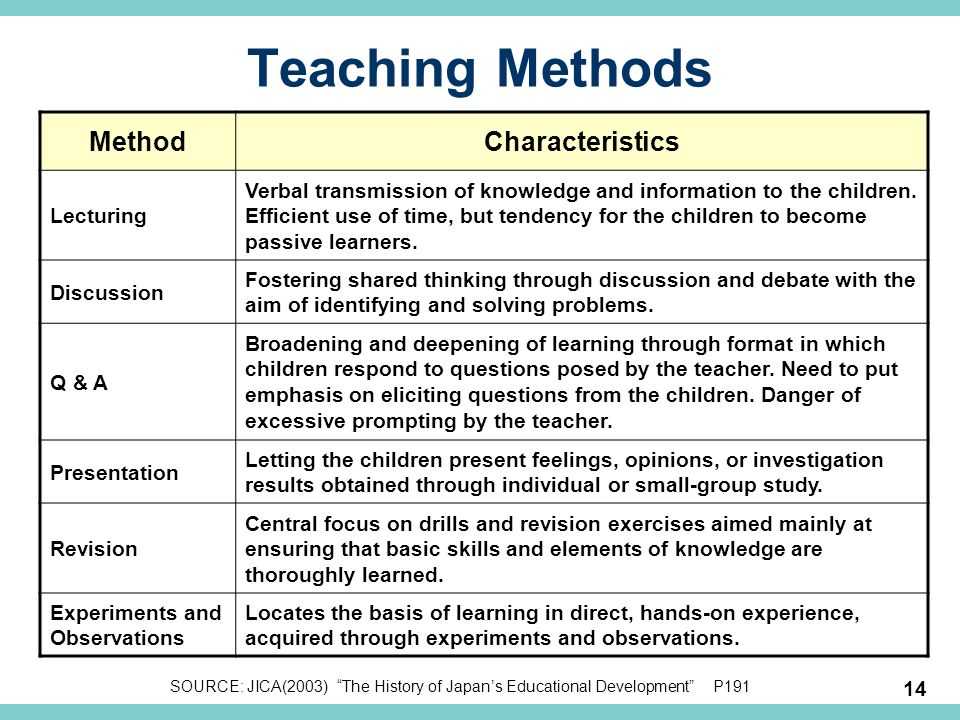
Medications used to treat depression and anxiety disorders include antidepressants and anxiety medications. If you’re prescribed medication, it’s important to take it exactly as directed by your mental health provider. Some medications may take several weeks to start working.
Psychotherapy can help you to identify negative thoughts, emotions and behaviors, then change them to improve your mental health and quality of life. A variety of types of therapy are used to treat depression, anxiety and other mental health issues that can occur in middle adulthood.
online psychiatrist prescriptions
talk to a psychiatry provider. it’s never been easier
Getting Through a Midlife Crisis
Growing older can be a rich, rewarding experience, but like everything else in life, it can involve plenty of ups and downs.
As you enter the middle of adulthood, realizing that half of your life has already passed can lead to serious questions and worries. Many of these can be channeled into positive changes, but it’s also possible for some to lead to depression, anxiety or other mental health issues.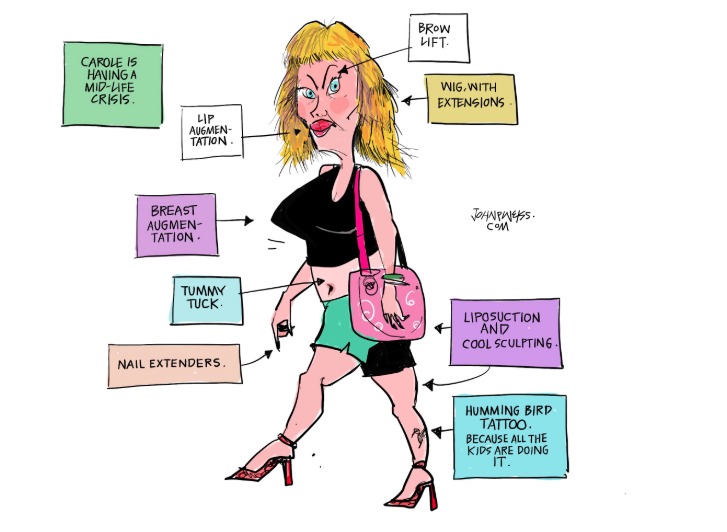
If you’re worried about your mental health in middle age, it’s important to get expert help locally or by using our online mental health services.
There’s nothing shameful in seeking professional mental health help. In fact, doing so can help you to successfully navigate the challenges of middle age and enjoy this new stage of your life to the fullest.
11 Sources
Hims & Hers has strict sourcing guidelines to ensure our content is accurate and current. We rely on peer-reviewed studies, academic research institutions, and medical associations. We strive to use primary sources and refrain from using tertiary references.
- Infurna, F.J., Gerstorf, D. & Lachman, M.E. (2020, May-June). Midlife in the 2020s: Opportunities and Challenges. The American Psychologist. 75 (4), 470–485. Retrieved from https://www.ncbi.nlm.nih.gov/pmc/articles/PMC7347230/
- Major Depression. (2022, January). Retrieved from https://www.nimh.
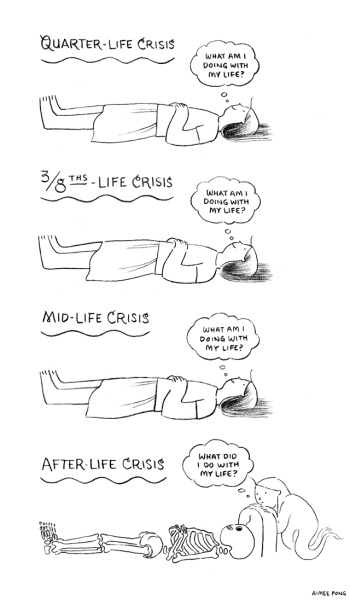 nih.gov/health/statistics/major-depression
nih.gov/health/statistics/major-depression - 6 Ways to Overcome an Existential Crisis. (2020, June 26). Retrieved from https://health.clevelandclinic.org/ways-to-overcome-an-existential-crisis/
- Depression. (2018, February). Retrieved from https://www.nimh.nih.gov/health/topics/depression
- How to help in an emotional crisis. (2013). Retrieved from https://www.apa.org/topics/mental-health/help-emotional-crisis
- Any Anxiety Disorder. (n.d.). Retrieved from https://www.nimh.nih.gov/health/statistics/any-anxiety-disorder
- Anxiety Disorders. (2018, July). Retrieved from https://www.nimh.nih.gov/health/topics/anxiety-disorders
- Bühler, J. L., Krauss, S. & Orth, U. (2021). Development of relationship satisfaction across the life span: A systematic review and meta-analysis. Psychological Bulletin, 147 (10), 1012-1053. Retrieved from https://psycnet.apa.org/fulltext/2022-16081-001.
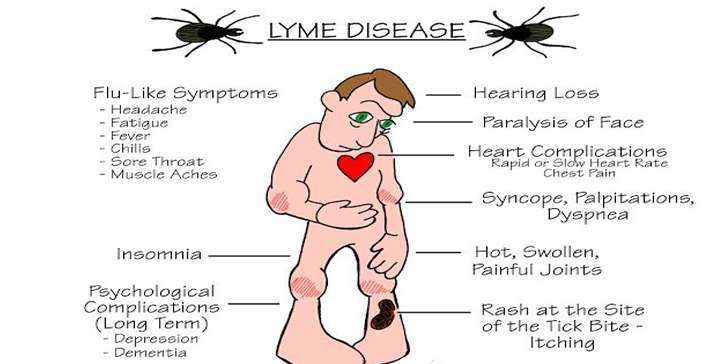 html
html - Testosterone. (2020, January 26). Retrieved from https://medlineplus.gov/ency/article/003707.htm
- Bougea, A., Despoti, A. & Vasilopoulos, E. (2019, October-December). Empty-nest-related psychosocial stress: Conceptual issues, future directions in economic crisis. Psychiatriki. 30 (4), 329-338. Retrieved from https://pubmed.ncbi.nlm.nih.gov/32283536/
- Psychotherapies. (2021, June). Retrieved from https://www.nimh.nih.gov/health/topics/psychotherapies
This article is for informational purposes only and does not constitute medical advice. The information contained herein is not a substitute for and should never be relied upon for professional medical advice. Always talk to your doctor about the risks and benefits of any treatment. Learn more about our editorial standards here.
Male midlife crisis
"Midlife" or "midlife" crisis are colloquial terms for the most difficult period in the life of every man.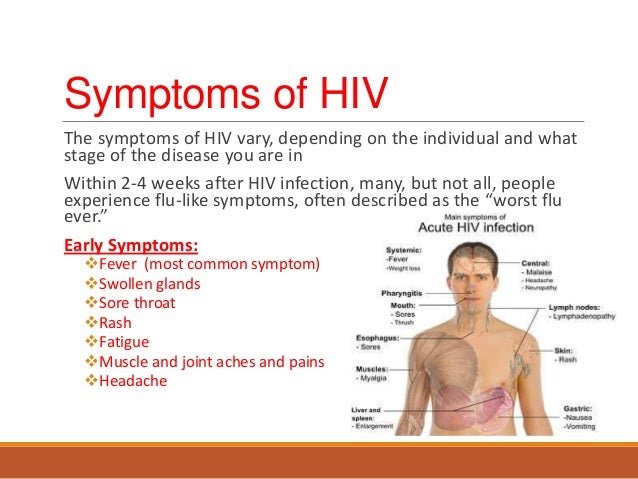 Does it come at the age of 40? How long does it take? How to survive it and what are the consequences? We put the answers to the main questions on the shelves and form the ideal recipes for overcoming the crisis together with uznayvse.ru.
Does it come at the age of 40? How long does it take? How to survive it and what are the consequences? We put the answers to the main questions on the shelves and form the ideal recipes for overcoming the crisis together with uznayvse.ru.
What is a midlife crisis in men
A midlife crisis is a long period of depressed mood in men, during which they comprehensively reassess their lives, achievements and future goals. Why is this condition called a crisis? nine0003
The average life expectancy of a man in Russia is 68.5 years, so already at the age of 35+ (although according to WHO estimates this is still young), and sometimes even earlier, he begins to feel that he has crossed a certain line, he has lived half his life. The later the midlife crisis occurs, the higher the man estimates the likelihood of an imminent death, the more realistic it is.
Upon reaching maturity, a man begins to rethink the past
Because of this, he begins to experience a permanent feeling of elusive time. Obsessive thoughts (“so many years have passed, but I didn’t have time to do it”, “I still haven’t achieved it, but there is so little time left”, “I planned for 25, but I’m already 30”) reduce his self-esteem, drive him into a depressed state. nine0003
Obsessive thoughts (“so many years have passed, but I didn’t have time to do it”, “I still haven’t achieved it, but there is so little time left”, “I planned for 25, but I’m already 30”) reduce his self-esteem, drive him into a depressed state. nine0003
A man experiencing a midlife crisis tends to devalue his social status and lower the significance of the achieved heights. He becomes biasedly strict about his appearance, professional skills and abilities.
A midlife crisis can be both a springboard to new victories and quicksand that will become a catalyst for a long-term depression. One thing is obvious: this period must be calmly and patiently worked out in order to regain inner harmony and gain self-confidence. nine0003
Symptoms of a midlife crisis
How does a midlife crisis manifest itself in men? Let's examine a few obvious symptoms:
- A man begins to drastically rethink his life. He asks questions: why do I live? What is the purpose of my life? Why do I do what I do?
- A man critically compares his successes with his own ideas about the ideal "I".
 He compares his youthful dreams with the real state of affairs and appreciates the difference. nine0024
He compares his youthful dreams with the real state of affairs and appreciates the difference. nine0024
- A man reacts painfully to the achievements of other people of his age, and even more acutely to the achievements of those who have achieved more at a younger age.
- A man feels miserable for inexplicable reasons, explaining this by sudden blues or fatigue.
- The man begins to criticize relatives and friends, as if finding fault with them for no reason.
- A man abruptly loses interest in his hobbies or begins to get involved in activities that are uncharacteristic for him. nine0024
- A man begins to pay more attention to his “youth” and tries to influence the perception of other people: he drastically changes his image, listens to popular, trendy music, buys exclusively branded clothes, etc.
A distinctive feature of all these signs is an unstable emotional state. A man has doubts about his own personality in all its manifestations, from career to sports.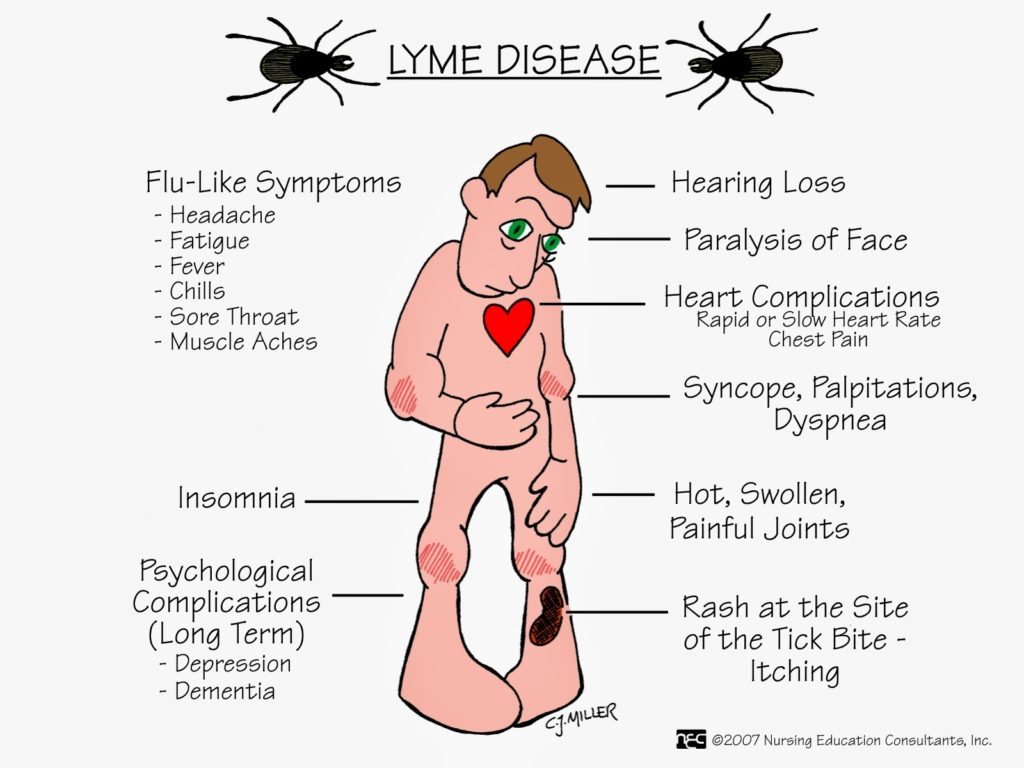
The period of crisis is a time of deep rethinking of the “I”, requiring sincerity, willpower and calmness. A man seems to be meeting with himself and his fears, complexes and impotence. He feels that life is fleeting than he expected, which means that there is also less time to achieve goals than it seemed. nine0003
Helplessness before the future is sublimated into destructive habits
Many successful men experience a feeling of emptiness during a crisis. They do not know where to go next, and the laurels won no longer bring a sense of satisfaction.
A midlife crisis in a man is a test not only for him, but also for people from his close circle. The ability of friends and family to empathize, support and understand a man's unstable mood is often a key factor in overcoming a difficult period. nine0003
When the crisis begins
Men's midlife crisis is not necessarily as accurate as clockwork. It can go away at 30 or 32, at 28 or 54, or not at all. What does it depend on?
It can go away at 30 or 32, at 28 or 54, or not at all. What does it depend on?
When a crisis can begin:
- A man fails in his career: he is not satisfied with the salary or position, he does not feel his authority among colleagues or does not grow professionally.
- A man is going through a difficult period in his personal life: he is in an unhappy marriage, cannot find a suitable partner, or has destroyed a relationship in which he was happy. nine0024
- The man has experienced a series of difficulties and feels that he cannot cope with them. for example: a wife left, she was fired from her job, there were health problems or financial problems, all in one year.
- The man has experienced an emotional upheaval (for example, lost his parents), and his outlook on life is undergoing significant upheaval.
- Desire to change profession or place of work.
- A sharp reassessment of values: from the desire to start a family to the firm intention to remain single. nine0024
- Change of hobbies: those who worked hard begin to devote more time to entertainment and sports, and vice versa.
- Emotional instability and a tendency to self-criticism and negative comments about others.

- compare yourself only with yourself in the past, objectively comparing the efforts expended with the results;
- focus on the main goals, do not scatter on unnecessary ideas and projects imposed by society;
- clearly define the list of priorities, share them sincerely and easily;
- reconsider the environment: exclude toxic friends and partners;
- outline a comprehensive long-term plan for 5 or 10 years and break it down into stages;
- treat your own emotional swings patiently, calmly analyze the reasons and change the line of behavior.

- A serious reassessment of family values: a man thinks about creating a family, realizes his level of happiness in marriage or current relationships.
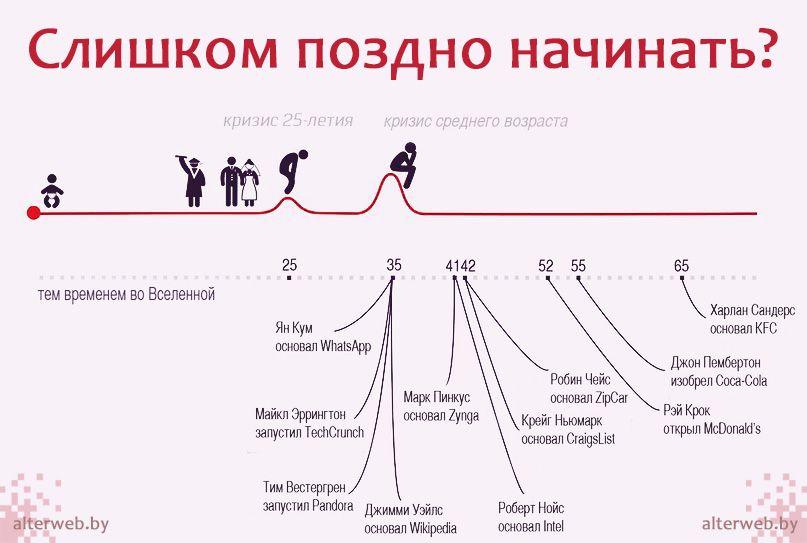 nine0024
nine0024
- Increased attention to one's own appearance: a man begins to actively go in for sports, changes his style in clothes and hairstyle, etc.
- Thinking about your own health: a man can undergo a comprehensive diagnosis of the body, learn about ways to strengthen his stamina and prolong the ability to bear children.
- The desire to look younger and act “out of age”: a man changes his environment, starts to get involved in trends and flaunts his own status. nine0024
- to read special literature on the psychology of motivation and mental characteristics, if necessary, visit a psychologist;
- pay attention to health and regular exercise; nine0024
- strengthen friendships and family relationships, find support and inspiration in them;
- take care of your emotional state: enjoy your leisure time and hobbies, spend your free time interesting and fun;
- define career goals and outline a plan to achieve them.

- pay close attention to your daily routine, nutrition and sleep;
- deal with family relationships, visit a family psychologist;
- assess and improve personal comfort: at home, at work and in relationships with friends;
- find hobbies that are relaxing and enjoyable;
- exercise regularly in a pleasant and comfortable way;
- fill life with new sensations: travel, art, communication with new people; nine0024
- engage in self-development: read professional and scientific literature, get rid of bad habits, keep a diary, reconsider your attitude to life.
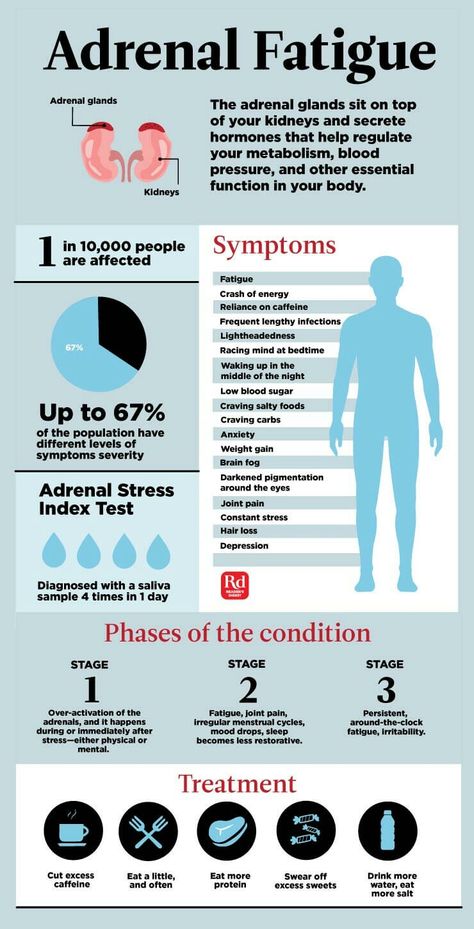
- a decadent state of mind, apathy;
- feeling of constant tiredness;
- loss of interest in life;
- prone to eccentric behavior;
- growing desire to criticize the world around;
- disappointment in marriage;
- difficulties in communicating with children.
- Mental health is largely determined by physical condition. The stronger the health, the easier it is to establish a stable sense of inner harmony. Therefore, the obvious recommendations of doctors are so effective: quitting smoking and alcohol, a healthy diet, regular physical activity (let it be at least 30 minutes of walking a day), stabilization of sleep patterns.
- Simple pleasures bring no less pleasure than large-scale events, if you pay due attention to them.
- Sport is useful at any age and obligatory after middle age.
- Family relationships bring the strongest support and inspiration if you give yourself to them sincerely and with love.
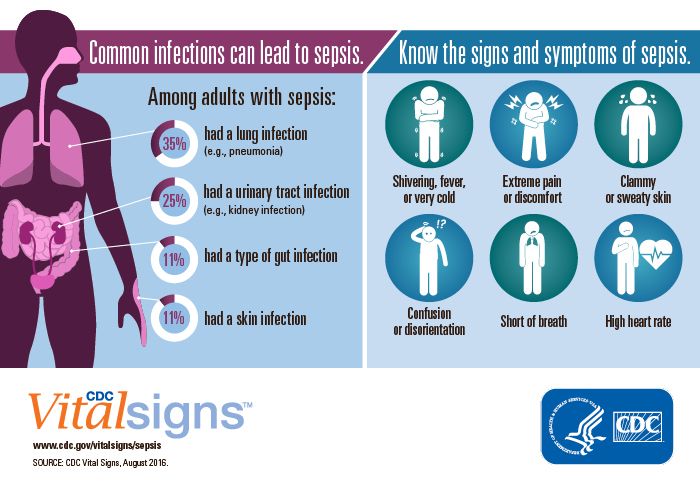 It is worth remembering that women also suffer from a midlife crisis and they also need support.
It is worth remembering that women also suffer from a midlife crisis and they also need support. - deterioration in physical condition, loss of libido;
- fear of death;
- boredom, lethargy and apathy;
- a feeling of having reached the limit in a career;
- desire to radically change the situation.

- Maintain a harmonious inner state, treat yourself with care and respect. nine0024
- Pay more attention to your health.

- Be calm about changes and do not rush things, stop exhausting yourself with loads and unattainable goals.
- Negative.
Quietest stage. A man feels his age, but tries to pretend that he does not concern him, and drives away all thoughts of coming maturity or old age.

- Anger.
It is natural that, having accumulated, negative thoughts break out. A man is irritated for petty reasons, indignant, indignant and reacts too emotionally.
- Replay stage.
Considered the longest. A man begins to behave irrationally, for example, he allows himself expensive purchases, cheats on his partner, changes the situation dramatically without explaining the reasons. His actions are spontaneous, impulsive and often explained by one motive: "I do what I want." nine0003
- Depression.
Period of emotional decline. Frivolous acts did not bring the expected relief, possibly ruining the man's relationship with loved ones. He comes face to face with his inner self and his problems and fears. The contrast between the ideal “I” and the real “I” is the brighter, the more painful. A man withdraws into himself and is acutely experiencing a drop in self-esteem.
- Detachment.
Marks the beginning of inner work.
 At the same time, she is not always accompanied by obvious changes in the behavior of a man. Outwardly remaining the same, he reassesses his life and gradually opens up new opportunities for growth. nine0003
At the same time, she is not always accompanied by obvious changes in the behavior of a man. Outwardly remaining the same, he reassesses his life and gradually opens up new opportunities for growth. nine0003 - Acceptance.
The final stage, which is conditionally divided into three sub-stages:
- the first one is insight: a man begins to face the truth and evaluate himself objectively;
- second - a short rollback to the previous stages, the time when a man finally says goodbye to the past;
- the third is a rebellion against reality, an attempt to cope with new realities through vigorous action.
- Stop digging into the past and appreciating missed opportunities.
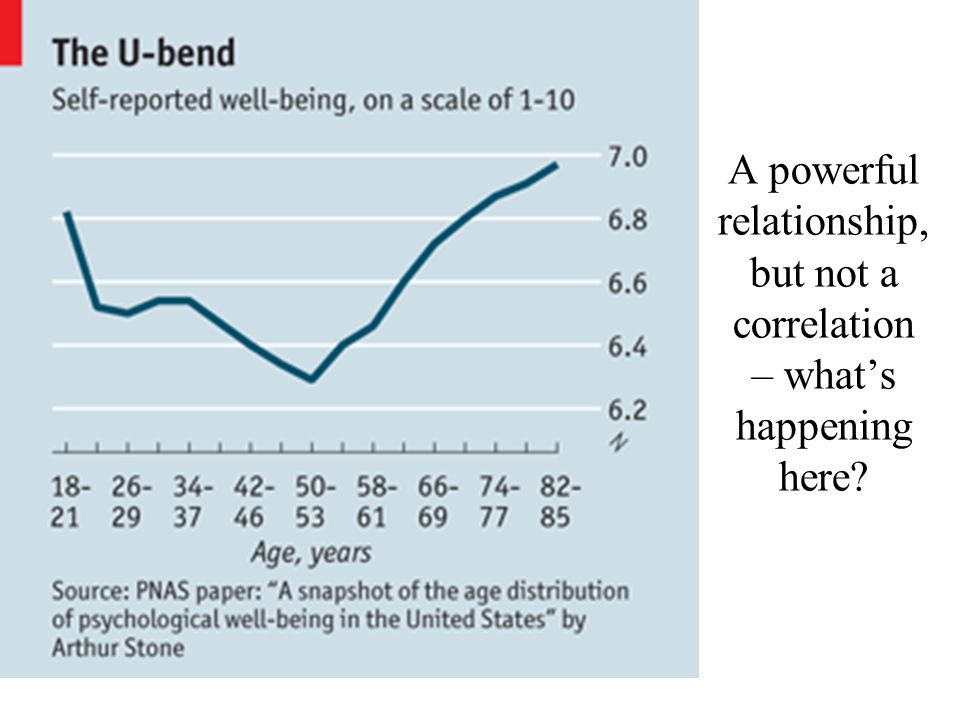 Life can become more interesting and brighter only through actions in the present.
Life can become more interesting and brighter only through actions in the present. - Realize long-term desired goals. It is rational to earn money for a car and an apartment, but the real pleasure will bring the realization of a real, not an imposed dream.
- Remain optimistic and treat the crisis with humor.
- Concentrate on good things and be able to notice them even in the most mundane situations. Praise yourself for your success.
- Set specific goals and clearly present a plan to achieve them.
- Appreciate what you already have and accept the blessings of life with gratitude.
- Monitor your health, prevent the development of diseases and overwork. Exercise regularly and enjoy.
- What is midlife crisis
- Causes
- When the Crisis Comes
- Symptoms and signs
- Male midlife crisis
- Women's midlife crisis
- How to Survive
- How to help those in crisis
- there was a need to improve physical fitness and appearance; nine0024
- there was a desire to move actively: running, cycling, dancing, going in for extreme sports: racing, skydiving;
- made drastic changes in the diet or went on a diet, started taking vitamins or dietary supplements;
- buy new clothes and spend more time looking;
- change your hairstyle, color your hair due to natural changes in color, thickness and quantity;
- dramatically change the circle of friends, which is replenished by people of a younger age; nine0024
- feel dissatisfaction with your own achievements;
- compare yourself with other people of your age who have achieved more;
- what used to bring pleasure is boring; there was a desire to quit a successful career;
- experience irritability, sudden fits of anger;
- you get tired faster, there are problems with memory, new diseases, the consequences of bad habits have accumulated;
- the need for sleep has changed: you want to sleep more or, conversely, less; nine0024
- became more prone to stress;
- like listening to other music, suddenly want to learn how to play a musical instrument;
- have a sudden interest in painting or writing;
- awakened interest in religion or philosophy;
- think about death more often, talk about its nature;
- trying to give new life to things that you bought 20 years ago;
- often remember your childhood; nine0024
- think about the future.
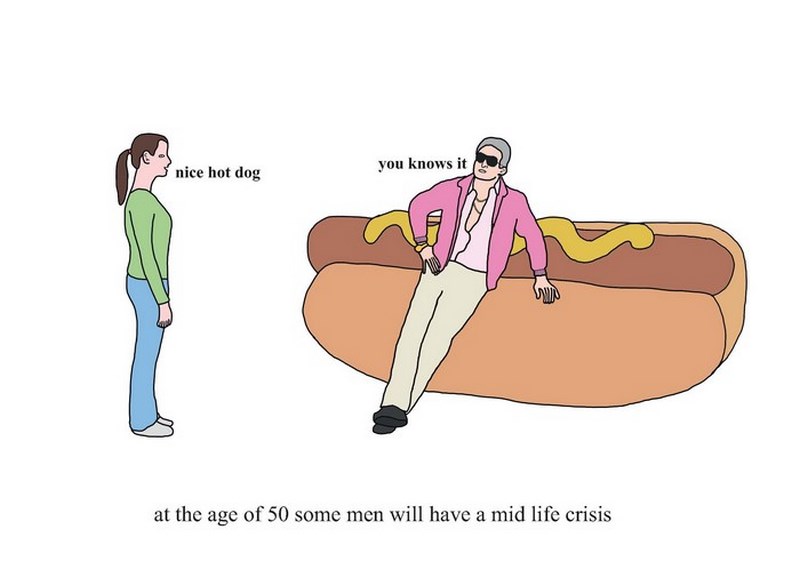
- You are over 40 years old. Colarusso most often sees men struggle with a midlife crisis in their 40s and 50s.
- You are concerned about the main areas of your life. This may include dissatisfaction with career, marriage, health, as well as a desire to change them for the better.
- You feel that there is little time to choose a new direction.
- appearance and physical form change;
- grandchildren appear;
- parents or friends die.
- addiction to alcohol; nine0024
- novel on the side;
- leaving the family, breaking up long-term relationships;
- desire to add thrills.
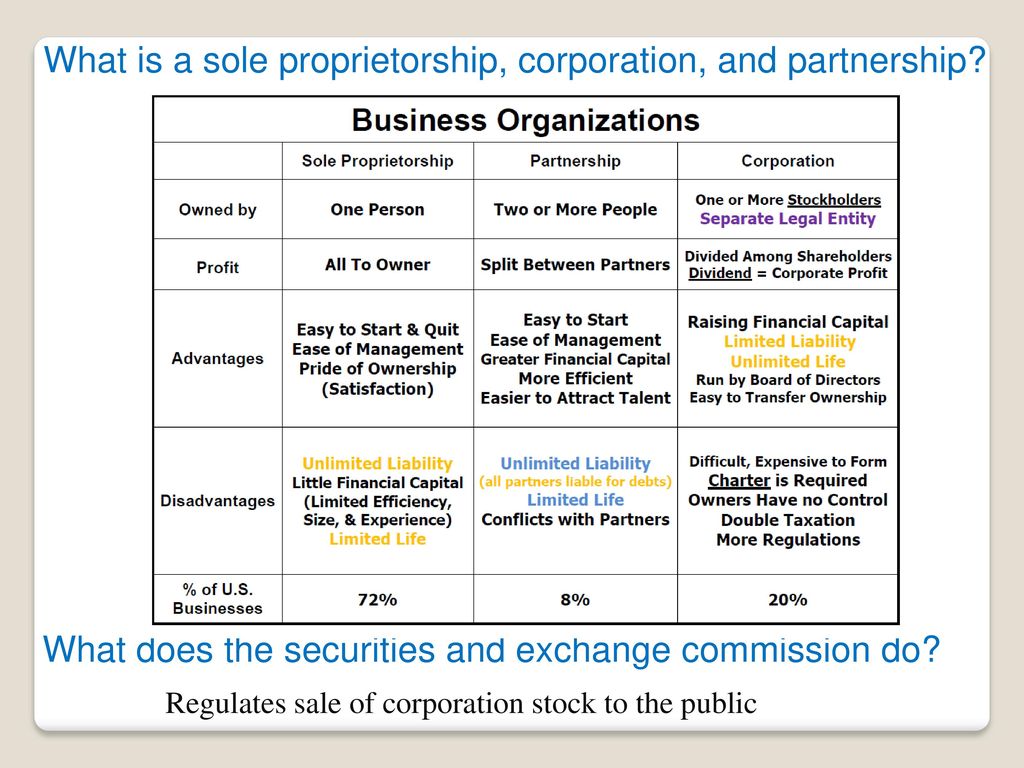
- depression and anxiety;
- lack of motivation or desire to devote time to certain activities;
- dissatisfaction with career and other life choices.
- emotional stress interferes with sleep or affects appetite;
- cannot concentrate on work;
- stress or mood affects relationships with loved ones;
- lost interest in entertainment and hobbies;
- are thinking about major life changes: ending a long-term relationship, changing careers, or moving.
 At the same time, the desire to make changes is born from the internal upheavals associated with age. nine0024
At the same time, the desire to make changes is born from the internal upheavals associated with age. nine0024 - Become a good listener for loved ones, let the person talk about their experiences. Try to listen without judgment and refrain from giving advice. Let a friend share how they feel and let them know that you are there. nine0024
- Express your concern, concern more often. At the same time, it is better to avoid exclamations from the series: “It seems that you are having a midlife crisis ?!” Instead, try asking probing questions like, “You haven't looked like yourself lately.
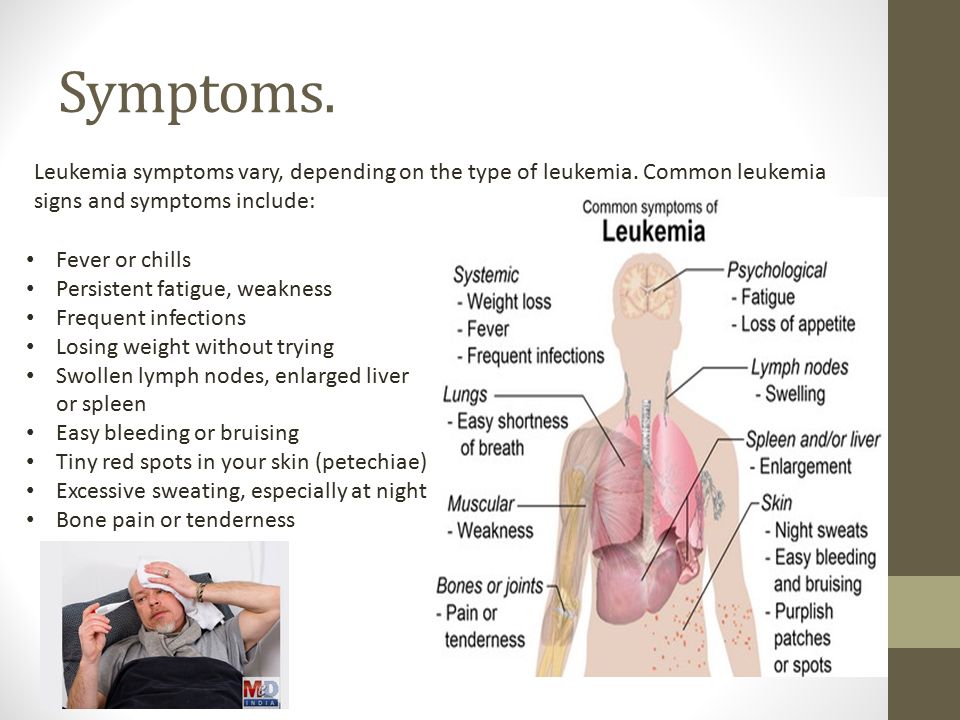 Are you all right?"
Are you all right?" - If needed, talk to your loved one about the importance of getting professional help. Suggest talking to a psychologist or doctor. Keep in mind that the changes you see in a person may indicate health problems. For example, a thyroid disorder often causes mood swings. The specialist will help to rule out medical problems and determine if a psychologist is needed. nine0024
- When someone close to you refuses to seek help from a specialist, you can consult a psychologist yourself. A therapist can help you develop a plan to support the other person and set healthy mental boundaries.
- Seek help immediately if you notice that a loved one may harm themselves or others. If necessary, take him to the emergency room for examination. If a person refuses to go to the hospital, call an ambulance and do not leave him unattended. nine0024
Most often, a crisis coincides with a period of precisely social failures, because a man most often associates his own success with his status.
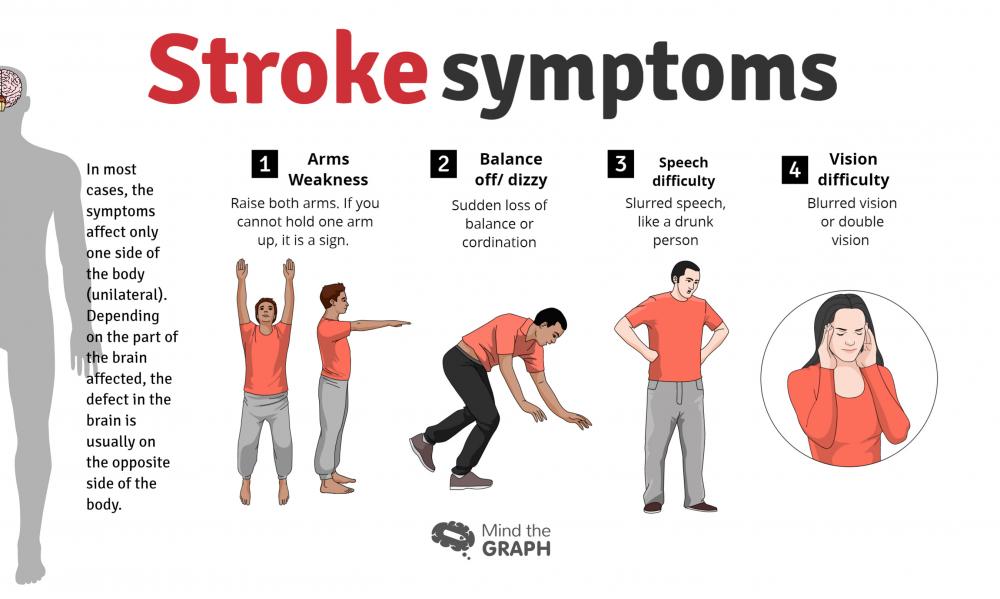 In second place is the state of the intimate sphere. nine0043
In second place is the state of the intimate sphere. nine0043 When the most difficult age is crisis years
Crisis years for a man often come before anniversaries round dates: 30, 40, 50 years, etc. During these periods, he feels the increased attention of society to his achievements and unconsciously attaches more importance to age than usual.
The crisis period is individual for each man
For example, at the age of 29, a man hurries to career heights in order to declare his new status at 30 and earn the opinion of himself “already by the age of 30 he…”. nine0003
At the age of 39, a man may strive to look as young and attractive as possible, so that at 40 no one would believe that he has really turned 40. its stable, well-established life as a small well-organized kingdom.
Thus, the most difficult periods for a man are often not the crisis years, but the time that precedes them. nine0003
At 30
A distinctive feature of a midlife crisis in a man at 30 is criticism of his own social status and financial situation.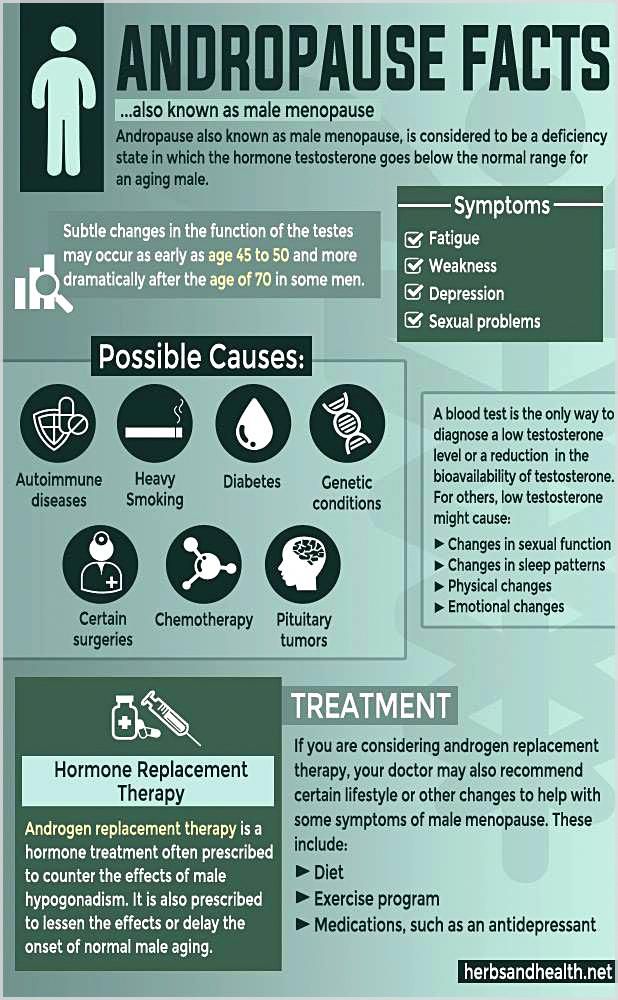 He reviews his achievements at work and compares them with internal representations, often not for the better.
He reviews his achievements at work and compares them with internal representations, often not for the better.
At the age of 30, the main cause of the crisis is doubts in the professional sphere
success “because everyone else is doing it”. nine0003
The crisis of 30 years is hardly due to hormones: a man is far from the first manifestations of old age, which means that thoughts about health and probable death should not visit him. Rather, it is a period of social crisis, a time to assess one's professional place and set new long-term goals.
Common signs of a midlife crisis in men at the age of 30:
At the age of 30, a man understands that there is still enough time for self-realization, but he is no longer able to change many things. This is the period of the first sharp rejection of illusions in favor of reality, often painted in negative tones. Many men, on the contrary, go into a position of self-deception and a frivolous perception of life, refusing new forms of responsibility, for example, family responsibility. nine0003
What steps are important to take to make the midlife crisis at 30 go faster?
A 30-year-old crisis in a man can lead him to new career heights and spur him to action, or, conversely, aggravate his lack of will and provoke depressive states. The key factor is the character traits of a man, his willingness to adapt to new conditions, the desire to overcome difficulties and achieve his goals. nine0003
Andrey Kurpatov: how to survive the crisis 30 years old
At 35 years old
A midlife crisis in a man at the age of 35 manifests itself in his first critical assessments of his appearance and youth. He feels that the old behavioral models are beginning to become obsolete, and he looks at his image in a new way.
At 35, a man has doubts about behavioral patterns
Characteristic features of this period:
Some men aged 35+ experience this condition and fall into apathy. They go to work as if on a machine, abandon their hobbies and lose interest in the opposite sex.
To survive the midlife crisis at 35 easily and with humor, it is useful:
If the depression does not drag on, it can bring positive results: a man will come to realize his needs and inner harmony. nine0003
The most dangerous attitude — “youth is gone, why strive for something” — is fraught with deep depression and a series of failures in the main areas of life.
At 40
The midlife crisis at 40 is characterized by a sharp denial of age and the realization that, at best, half of life is behind us. A man is painfully aware of his mortality and feels powerless.
Often it is during this period that he understands what his already elderly parents feel. Perhaps he has already managed to say goodbye to them and especially acutely feels his loneliness, scrolls in his head the scenario of their departure from life and realizes that, it seems, until recently, his parents were at his age. nine0003
How does a midlife crisis manifest itself at 40?
First, a man is clearly aware of the changes in his physical condition.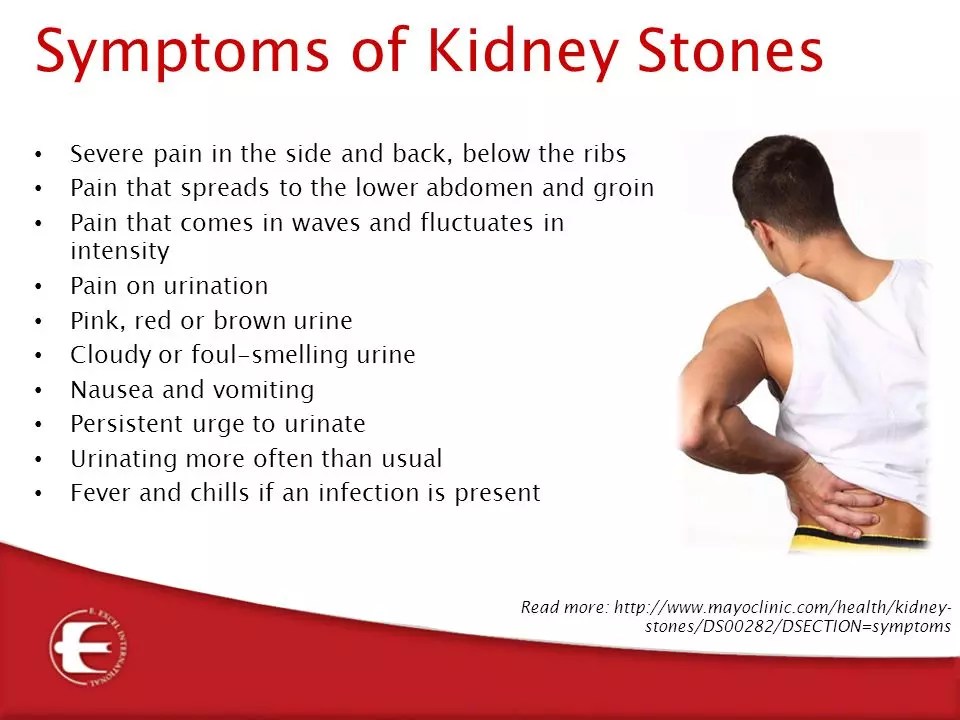 His working capacity decreases, his weight and muscle structure change, the condition of his teeth deteriorates, his eyesight deteriorates, and baldness may appear. He regards these changes negatively, as a result, self-esteem decreases.
His working capacity decreases, his weight and muscle structure change, the condition of his teeth deteriorates, his eyesight deteriorates, and baldness may appear. He regards these changes negatively, as a result, self-esteem decreases.
Secondly, the man is going through a crisis in the professional sphere. The specialty seems to be a routine, he increasingly doubts that he is doing a useful and suitable business, but he understands that a sharp change in activity is associated with serious material obstacles, while his responsibility to his family does not decrease. Career growth has slowed down, and new prospects seem vague and unattainable. nine0003
Thirdly, family relationships may disappoint him. If the marriage has lost its novelty, the partners do not develop, and the spouse often expresses her discontent or demonstrates indifference, the man feels unnecessary and begins to think that the relationship has become obsolete. Such sentiments encourage men to assert themselves at the expense of young partners and dissolve marriages for the sake of fleeting relationships.
Finally, the man is experiencing an internal crisis associated with a reassessment of values and self-determination. He may feel inner emptiness for no explainable reason, sharply lose interest in communicating with friends and relatives. His psyche is going through a turning point: a man acutely perceives the passing time and regrets the missed opportunities. nine0003
During this period it is useful to:
At the age of 45
The crisis of 45 years in men is associated with a period of stagnation. He loses motivation for work and career growth, sports, intimate sphere. Life loses its usual colors and novelty of sensations. At this stage, the man understands that “rejuvenation” with external attributes is no longer effective, and tries to impress with his social status and experience. nine0003
At 45 a man usually gets used to external changes
Midlife crisis at 45 in a man is:
In a crisis, a man can project internal problems onto his inner circle: his wife has lost attractiveness, children have become self-centered, friends become boring.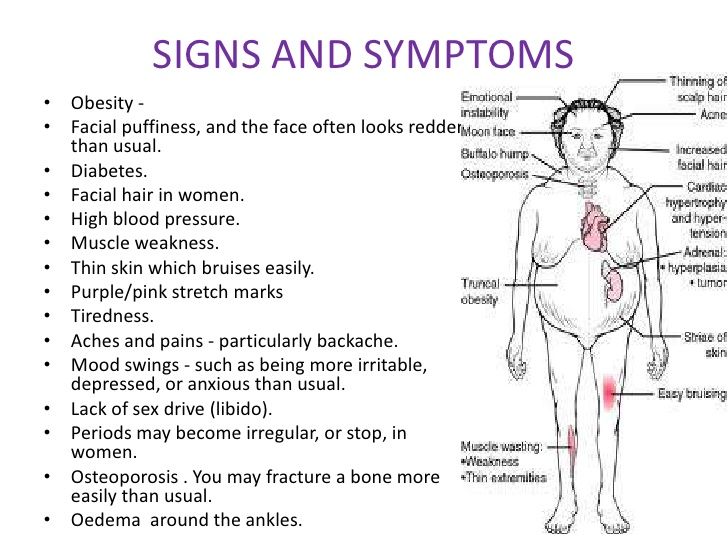 This period is dangerous by the destruction of ties that have been strengthened over the years. The man believes that he is hopelessly bogged down in everyday life, and begins to blame his relatives for this. It seems that a midlife crisis will inexorably spoil his character. nine0003
This period is dangerous by the destruction of ties that have been strengthened over the years. The man believes that he is hopelessly bogged down in everyday life, and begins to blame his relatives for this. It seems that a midlife crisis will inexorably spoil his character. nine0003
Don't be discouraged. Even the most protracted crisis can be overcome by remembering simple life principles:
During the crisis of 45 years, a man often feels his powerlessness and worthlessness. That is why the support, love and patient attitude of loved ones at this time play a decisive role in the quick resolution of his internal conflicts. nine0176At 50
Retirement age is approaching, and with it thoughts about what to do in the future. The midlife crisis at 50 is, like at 30, primarily a crisis of the profession.
At 50, a man worries about his upcoming retirement
A man understands that doing what he loves has become more difficult, at some points he lacks youthful enthusiasm and energy. It is difficult for him to adjust to different tasks, to behave flexibly and diplomatically, to maintain authority. A man may feel the fragility of his social position. nine0003
Also typical for the crisis of 50 years:
People around congratulate you on your anniversary and wish you only health, but not career heights, increasing wealth or success in your personal life. The opinion of colleagues, friends and relatives often turns out to be decisive for the self-esteem of a man in crisis. For this reason, he may lose faith in his abilities and put an end to his personal and professional development, believing that he is no longer capable of more. nine0003
The sphere of private life may also undergo a period of stagnation. If a man is married, his attitude towards his wife may become cold and indifferent. He no longer expects novelty from relationships and lives with his wife as if out of habit. A lonely man during a crisis experiences a sense of hopelessness and growing loneliness.
How to deal with a midlife crisis at 50?
A midlife crisis may not come at 50. The probability depends on the level of consciousness of a man, his physical and mental health, as well as social status.
After 50 years
Midlife crisis after 50 years of age occurs in different years of life and is associated with the acceptance of one's own approaching old age and the features arising from it. A man is increasingly thinking about death and how he wants to spend the last stage of his life. nine0003
Midlife crisis often manifests itself in impulsive purchases
During this period, many give up any ambitions and live reflecting on past achievements and analyzing their lives. If a man believes that he spent her best years with dignity, the crisis may not come.
Another hallmark of the midlife crisis after 50 is the assessment of one's contribution to the future of generations.
A man critically weighs whether he has given enough to his children and grandchildren and whether he will be able to help them in difficult situations. A man begins to gradually lose his relatives and friends, his thoughts rush to his own family and its future well-being. nine0003
The main prerequisites for the onset of a crisis period after 50 years are deteriorating health, dissatisfaction with life and loneliness. A man with established principles, who has built a brilliant career and is surrounded by loving people, is unlikely to perceive the expected old age with longing and become depressed.
Stages of Midlife Crisis
Dr. Jim Conway identified and detailed six stages of crisis based on the stages of mourning or depression discovered by Elisabette Kübler-Ross. Dr. Conway used the name and order of the stages of depression, adding completely original descriptions:
After 6 stages of the midlife crisis comes a period of peace and tranquility. A man is aware of his new "I" and is ready to move to new heights. nine0003
When the crisis ends
A midlife crisis in men can end before it even starts. As soon as the internal conflict is resolved, and a clear plan is outlined in the head for resolving current problems, the man, as a rule, calms down.
The feeling of devastation and impotence go away, the desire and motivation to act return.
The crisis is considered over when a man resolves an internal conflict
The midlife crisis at 30 ends with the setting of new professional goals and the definition of priorities in personal life. nine0003
The midlife crisis at 40 and 45 ends with a man's acceptance of his new mature personality. When he understands that age cannot be reversed, and in the current realities you can find your advantages, self-esteem and an adequate attitude towards yourself are restored.
The crisis at 50 and after 50 ends with a man finding inner peace in relation to his own approaching old age and its prospects. He is aware of the approach of a new life stage and prepares for it. nine0003
How long does it take
The duration of a midlife crisis in a man varies from a couple of weeks to several years. It directly depends on his character, social and financial situation, health status and relationships with relatives and friends.
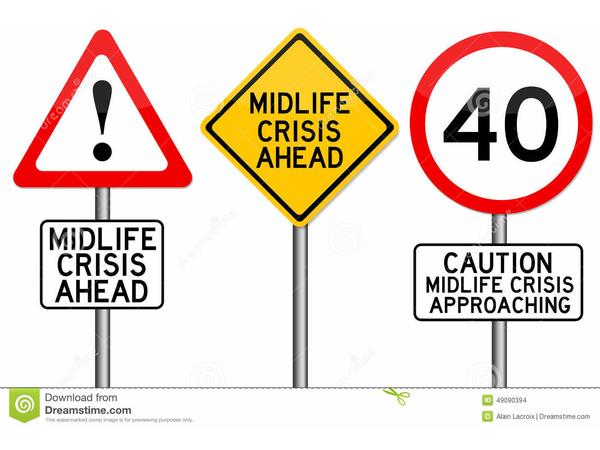
The midlife crisis is fast when a man is clearly aware of his problems and is ready to change and develop. Tracking unstable emotions and decadent moods, he gets a tool to manage his internal state. The more a man is open to the outside world and sincere with himself, the more likely it is that the crisis will end quickly and easily. nine0003
Can a midlife crisis drag on for years? If a man is prone to depression, forced helplessness syndrome, envy and negative reactions - yes. The weaker the character of a man, the greater the chance that the crisis will last long and painfully.How to survive a crisis
Universal advice for overcoming a midlife crisis applies to any crisis, because each of these periods is caused by the same reason - an internal conflict. It is important that loved ones are around. nine0003
How can a man survive a midlife crisis at any age?
Any trouble can lead to a crisis if you perceive it as evidence of your own weakness, reproaching yourself for mistakes and omissions. Only by changing his attitude to failures and continuing to develop in the chosen direction, a man easily overcomes crisis periods and gains confidence in himself and his future.
nine0003
What are the consequences of
The midlife crisis in men has mixed results. Some come out of this stage as winners, knowing themselves better, gaining inner confidence and peace of mind. Others lose faith in their ability to succeed and stop growing. Still others divorce their wives and find younger girls in order to feel like a hero in the eyes of a woman again.
A midlife crisis can become a stepping stone
It is obvious that in no case does a midlife crisis go unnoticed. The character of a man is changing: old complexes and resentments make themselves felt, fears force him to act or avoid change. A midlife crisis can either exacerbate a man's personality problems or resolve them. The result depends on his desire, patience and effort. nine0003
Conclusion
The midlife crisis in men is due to physiological and hormonal changes, as well as established social views that the onset of this period is inevitable.
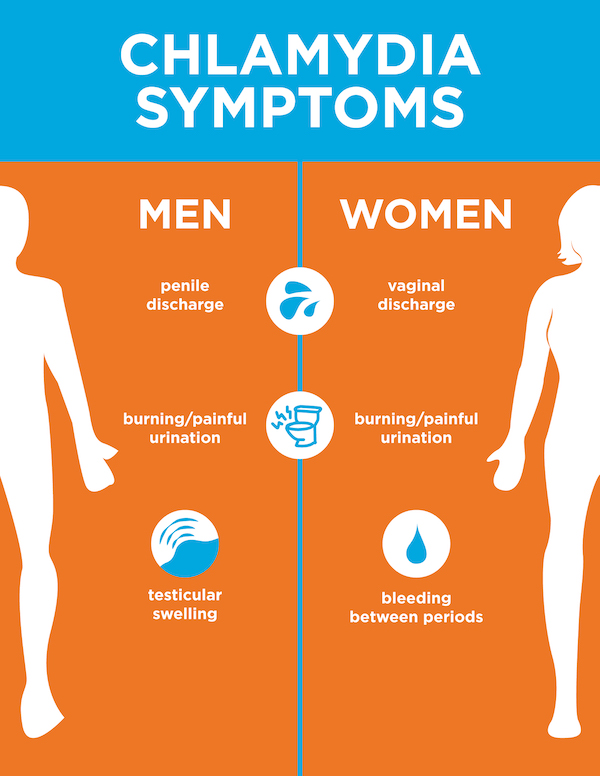
The duration and depth of the crisis, in turn, are determined solely by personal characteristics and do not depend on imposed stereotypes.
Treating the crisis period as a transient stage that brings potential opportunities and benefits, a man acquires a valuable tool for his own growth and achieves significant success. nine0003
If he finds excuses for his inaction and stagnation in the crisis, there are no reasons to overcome it, and the man loses faith in himself and the motivation to change.
What is a midlife crisis and how to overcome it
Many fans of the series "Friends" remember the series in which the main characters are going through 30 years. Each of the characters in the American sitcom showed the most expected reaction to a midlife crisis: Joe experienced a panic, Monica drowned her despair in wine, Phoebe summed up her years, and Rachel experienced depression, broke off relationships and began to make plans for the future. And, of course, Ross bought a red sports car.
But does everyone experience a midlife crisis, and what is the average age? Is it worth repeating the usual scenarios and clichés? And, most importantly, how to deal with it? nine0003
The article was checked and commented by Elena Fiveyskaya, psychologist, GMS Clinic coach
Advertising on RBC www.adv.rbc.ru nine0003
What is a midlife crisis
A midlife crisis is an emotional state that a person experiences at the age of 30-50, most often it is associated with a reassessment of life experience. It seems that many opportunities and dreams of youth are missed, while old age (or death) will come pretty soon. For different people, the crisis occurs at different ages, it depends on individual characteristics.

Crisis is often defined as a period of emotional upheaval and associated with a thirst for change. At the time of his experience, people try to fight the thoughts of old age. Many may forego responsibilities in favor of entertainment. That's why the term "midlife crisis" is often associated with buying a sports car or starting a new relationship. But middle age is also a time of reappraisal, debriefing, and self-determination, psychologists say. nine0003
Middle age is a time of reassessment, reflection and self-determination
© Shutterstock
Aging makes a person anxious and depressed. And a midlife crisis is a phase that helps you feel young again, because you don't want to put up with the fact that life is half over [1]. However, the emotional upheavals that people experience at this age do not always lead to major lifestyle changes associated with the desire to stay forever young. nine0003
The term was originally applied only to men. He explained the fear of death that they experienced during this period.
Today, the definition covers the physical, psychological, social problems faced by both men and women. However, many do not associate the midlife crisis with aging. So, in one of the surveys, men talked about problems at work or in the family, and women - with health and personal relationships.
Causes of midlife crisis
For many, middle age is a time when relationships and social roles change. Some people begin to care for aging parents, others feel lonely because adult children began to live separately . For others, this period becomes a time of regrets about missed opportunities [2].
Middle age can also be a time of deep reflection. People look back on the years they have lived and wonder what their life would have been like if they had taken a different path. Some begin to regret that they did not choose another career or did not accomplish what they once dreamed of. Others recall happier days of their youth. nine0003
Decline in happiness
One theory why some people experience a midlife crisis is that they experience a decline in happiness.
Research shows that the feeling of happiness can be depicted as a U-shape. Where a gradual decline in happiness levels begins in late adolescence and continues until the age of 40. Happiness begins to grow again at 50 [3]. This hypothesis was confirmed by the data of half a million Americans and Europeans. During the survey, people in their 60s reported that they had never been so happy in their lives. While forty-year-olds felt very miserable. However, the U-shaped curve is not an axiom at all. nine0003
When does a crisis occur?
According to research, not everyone experiences a midlife crisis. Some scholars believe that the concept of crisis is a social construct. It is the belief that some kind of crisis must occur at 40 that makes people think that they are experiencing disappointment and breakdown.
People feel lonely when their grown-up children start living separately
© Yan Krukov/Pexels
The US National Midlife Survey found that approximately 26% of participants experience a midlife crisis [4].
At the same time, the majority of respondents reported that it occurred in the period before 40 or after 50 years. These data cast doubt on the axiom that such an emotional state is directly related to age, since the average is usually considered to be 45 years. In addition, the vast majority of respondents said that the crisis was caused by a serious event in life, and not by age. These include divorce, loss of a job, loss of a loved one, or relocation. nine0003
Today, the age range of the midlife crisis has expanded, as men and women under the age of 30 and over 50 can experience it. And its onset is often due to personal characteristics and significant events in life.
Symptoms of a midlife crisis
Psychotherapist Elena Elfimova in her book "Crisis of Personal Relationships" describes in detail the symptoms of a midlife crisis. Here's what you need to pay attention to:
Mid-life crisis in men
Men most often associate the crisis with life values and the search for oneself. At the same time, the search can imply both a change in profession, changes in family life, and cardinal changes in lifestyle. At this point, men often look back on their past years, question their achievements and begin to look for themselves in something else.
Men most often associate the crisis with life values and the search for oneself
© Andrea Piacquadio/Pexels
Signs of aging also play an important role: as a rule, health and physical abilities begin to deteriorate in middle age. Thoughts that you can be happier if you change something can cause men to have an emotional crisis and an acute desire for speedy change.
A midlife crisis usually involves changing lives in a hurry, says Calvin Colarusso, MD, professor of psychiatry at the University of California, San Diego [5]. As an example, he cites the case of his patient who wrote a note to his wife, withdrew money from a bank account and moved to another city without warning.
But, according to Colarusso, this type of crisis is rare, more often men go through it less impulsively. nine0003
Signs of a midlife crisis in men:
According to a psychologist, many men are in dire need of change when:
Ph.D. and psychologist from Boston, Lynn Margolis, believes that at this stage, men can experience "teenage rebellion." “A sure sign of a midlife crisis is that you feel trapped and strongly tempted to change your life,” she says. Attempts may include:
Midlife crisis can lead to both growth and destruction of personality. If you look for the causes of your unhappiness, and then make thoughtful decisions to eliminate them, this is growth, says the psychologist. And making impulsive decisions, such as walking away from a familiar life, having a relationship with a younger partner that ends quickly, or buying a car that is too expensive, leads to destruction. nine0003
A sure sign of a midlife crisis: you feel trapped and strongly tempted to change your life dramatically
© Shutterstock
The psychologist encourages you to remember that feelings and impulsive impulses are not commands to act. After all, the desire to run away from home, work or family does not mean that it really needs to be done. These feelings may indicate problems that need to be addressed. In addition, over time, they may disappear altogether. Men make many successful changes in their 40s and older: get an education, travel, start their own business.
It is important to make sure that the new goals are practical and accessible. nine0003
Midlife crisis in women
Contrary to popular belief, the crisis affects not only men. Recent studies have shown that a similar emotional state is also characteristic of women from 40 to 65 years old [6]. During this period, they face not only physiological changes, but also problems at work, in family relationships, and in achieving financial and personal goals. The stress can be so intense that women may experience sleep disturbances and health problems[7][8]. nine0003
To avoid backlash, a midlife crisis is best viewed as an opportunity to re-evaluate your life, a chance to pause and spend time and energy figuring out what's important to you, says Susan Albers, PhD in Psychology.
Hormonal changes are the main difference in these situations, notes the psychologist. As women enter menopause, estrogen and progesterone levels decrease and cause physiological changes, including disturbances in sleep, mood, and sex drive [9].
During perimenopause and menopause, hormone imbalances can also cause memory loss, anxiety, weight gain, and decreased interest in things you used to enjoy, according to Mayo Clinic doctors [10].
Signs and symptoms of a midlife crisis in women:
The experiences that arise can direct women's attention inward. And since they are more likely to care about the feelings and needs of others, such self-reflection can provoke an emotional crisis. In the role of mother, women may be more visible in society or have a strong bond with their children, psychologists say. But one day the children grow up and stop needing them. And when women do not devote all their attention to the family, they have time to think about their experiences.
Stress can be so intense that women may experience sleep disturbances and health problems
© Cottonbro/Pexels
How to Survive a Midlife Crisis
1.
Embrace the Change
Not only gray hair and wrinkles show age, but also fatigue. Therefore, the question of how to feel younger is increasingly being asked by psychologists and psychotherapists. Try not to attribute changes in appearance to age. They are also caused by unfavorable ecology, hard work and stress.
Maintain mental activity: enthusiasm and a positive inner attitude are good for appearance. nine0003
2. Take care of yourself
Look for ways to reduce stress, whether it's asking loved ones to share your experience or using stress management techniques such as meditation or mindful breathing. Take care of yourself, eat a healthy diet and get enough sleep.
3. Take care of your health
Talk to your doctor or gynecologist to help you understand what is normal in your condition and what is depression or anxiety. Consulting a therapist can also help you cope with negative emotions. nine0003
4. Train your brain
Age also manifests itself in increased fatigue and forgetfulness.
Over time, the brain loses the ability to adapt to new situations. Try to diversify the usual course of life: change the route to work, give up the car, walk more often and arrange interesting events with family and friends. Stop using the calculator and start training your brain with mental counting. You can also give up diaries and entries in your mobile phone: try to remember phone numbers, memorable dates and a to-do list. nine0003
5. Get new emotions
Traveling is one of the common tips of psychologists. Sometimes a week spent in an unknown city or country can give more impressions than a whole year of measured life.
Look for ways to reduce stress
© Marcus Aurelius/Pexels
But going to the ends of the earth in search of new experiences is not an option for everyone, given the current pandemic. Previously unknown tastes and smells will help to get emotions and create neural connections. Try new dishes or buy an unusual perfume. In addition, you can diversify your leisure time with new hobbies.
nine0003
6. Be grateful
Take time to be grateful for the parts of your life that make you happy, psychologists advise. Try keeping a journal and write down what you are grateful for. Go back to your notes to see what you can change in your life.
7. Discuss your emotional state
Find accomplices. It is important to know that you are not the only one experiencing a crisis. Talking to others about how you feel is supportive. Those who have already gone through this state can share useful ideas and tips. Also, before making important decisions, discuss them with someone you trust. A friend or psychologist may have a different opinion about the correctness of your choice. nine0003
8. Do a self-evaluation
Try to understand what is important to you, what you spend time and energy on. Find out what takes energy instead of filling it. This process may involve restructuring relationships, getting rid of toxic people, finding new friends or hobbies.
Let go of guilt and don't get discouraged by introspection. Realize that this is a necessity and allow yourself to explore the important questions of life.
When to ask for help
Sometimes going through a midlife crisis doesn't require professional help. Perhaps, in order to feel that life has been filled with meaning, a new hobby is enough. But this emotional state can affect well-being. A midlife crisis should be treated like any other emotional crisis. If you are experiencing unpleasant symptoms that worsen your condition, it is best to seek help from professionals.
Psychological consultation will help to cope with negative emotions
© Shutterstock
Here are a few times when you should consult a doctor or see a psychologist:
How to help those who are in crisis
Experiences during this period can be quite strong. So much so that it becomes difficult to endure them not only for a person, but also for his family, friends, colleagues. At this moment, people begin to splash out their emotions and aggression, or, conversely, to withdraw into themselves.
If you suspect a friend or family member is having a midlife crisis, you can help them.
Psychologist's comment
Elena Fiveyskaya, psychologist, GMS Clinic coach
What is the difference between a midlife crisis in women and men?
Any age crisis is a turning point, a transitional moment that has its own stages and patterns of development.
In this midlife crisis in men and women is the same.
First of all, both of them will definitely have it: it will affect almost everyone. Secondly, it is directly related to its name - namely, it comes in the middle of life (median). This means that both a man and a woman will begin to compare their expectations from life with what has been achieved, can still be achieved, and with what has been lost forever. nine0003
But there are differences. The first is the age difference. If we do not take into account the tails of the distribution (for example, genes that allow a woman under 40 to look 20), then a woman begins to observe the first heralds of age-related changes by the age of 30.
If a woman has not yet given birth, then thoughts about the mythical biological clock sometimes fly into her head, becoming more insistent. Men have fewer such restrictions, at 30 they, for the most part, firmly believe that everything is still ahead. nine0003
The second difference is the goal that a woman and a man want to achieve.
There is an opinion that it is more important for a woman to realize herself in a family, and for a man - in a career. But, in my opinion, this stereotype is outdated, and many men today dream of a child, and women put their career first.
The third factor involved in the reassessment of one's abilities in middle age is related to the sexual sphere. These are menopause in women and erection problems in men. And here again we can note the difference in age limits (as well as with procreation). nine0003
But the main difference that I want to point out as a psychologist is what avoidance strategies (instead of accepting current changes) are used by men and women in the midst of a midlife crisis.
In men, trying to regain youth by committing reckless acts is the most common behavior. As they say, gray hair in the head is a demon in the ribs. They are trying to emotionally return to the pre-crisis state.
A woman, on the other hand, makes attempts to do it bodily: she decides on braces, plastic surgeries, rejuvenation procedures - all this is a multi-million dollar business that is based on the midlife crisis of the beautiful half of humanity.
nine0003
Once again, I want to emphasize that the differences between men and women are changing these days. A woman can run to buy a new Porsche, a yacht, or get a lover younger than herself, just as a man can maniacally improve his appearance.
Women do not lose the ability to receive the same vivid emotions as in their youth. In men, the emotional sphere fades, everything becomes boring, and life becomes like a “Groundhog Day”. Therefore, often men look for emotions in a new marriage, re-participate in the birth of children, experiencing this process in a different way, more consciously, as it seems to them. nine0003
A woman is more masochistic by nature, it is easier for her to devote herself to something else: a man, a child, projects. Because of her nature and ability to be a mother. Without the masochistic part, the stage of childbirth and postpartum care for the baby seems rather difficult. Therefore, this is inherent in a woman.
How long can a midlife crisis last?
Long enough if the person does not advance to the next level.
In especially severe cases, such a crisis can break a person. nine0003
Perhaps you have come across or even among relatives there are elderly people who are stuck in the past, have lost the meaning of life and do not expect anything more from this world. Usually they say about them: “She was never able to start a family, he never recovered from losing his job, etc.” Missed opportunities remained in the past, and the person did not set new goals for himself.
But there are also opposite cases, when a crisis pushes a person to his destiny, to what he always wanted to do, but for some reason did not do it. nine0003
Is there a complex treatment, crisis therapy?
The main therapy is a visit to a psychologist. A crisis is not a disease, but a transition from one phase of development to the next. If in adulthood there are difficulties in accepting some new circumstances, this is work with the psyche and defenses. A psychologist will help you understand what is stopping you and how to deal with it.
In some cases, you will have to burn yourself out, in others - to change the strategy, and thirdly - to set new goals.
How to help yourself with signs of a crisis? nine0003
It is extremely difficult to get out of the crisis on your own. I already wrote about the defenses of the psyche, which will not allow us to move on if we have not closed some specific goals, desires, our “wants”. There will be attempts again and again to get what you want, even if it is impossible. It also depends on the actual achievements of a person in comparison with his expectations. In this case, perfectionists will have a particularly hard time.
The only thing I would like to advise is not to compare yourself with others, everyone has been given a different amount of resources (both external and internal). So, even a successful businessman will be a loser compared to a person on the first line of Forbes. Another recommendation is to explore new areas, opportunities, everything new as much as possible, because the old is either unattainable, or has already been achieved and interest is lost.
nine0003
How can loved ones help those who are in crisis?
Everything is very individual and depends not only on the personality of loved ones and the one who is going through a crisis, but also on the peculiarities of the relationships that have developed between them. If even before the crisis the relationship was not trusting, and the personality was closed and secretive, then attempts to abruptly change course can unsettle even more.
It is important to pay attention to the reduction of possible criticism, to shift the focus to achievements. Notice the destructive thoughts of your loved one and challenge them. Talk if possible. Engage in new events, activities. nine0003
Are there any consequences of the crisis? Which?
Of the negative ones - the destruction of the personality (family, career), which may be accompanied by alcoholism, drug addiction, loss of faith in oneself or severe mental illness. Of the positive ones - new opportunities, a surge of energy for their implementation, another opportunity to turn your life in the right direction.
